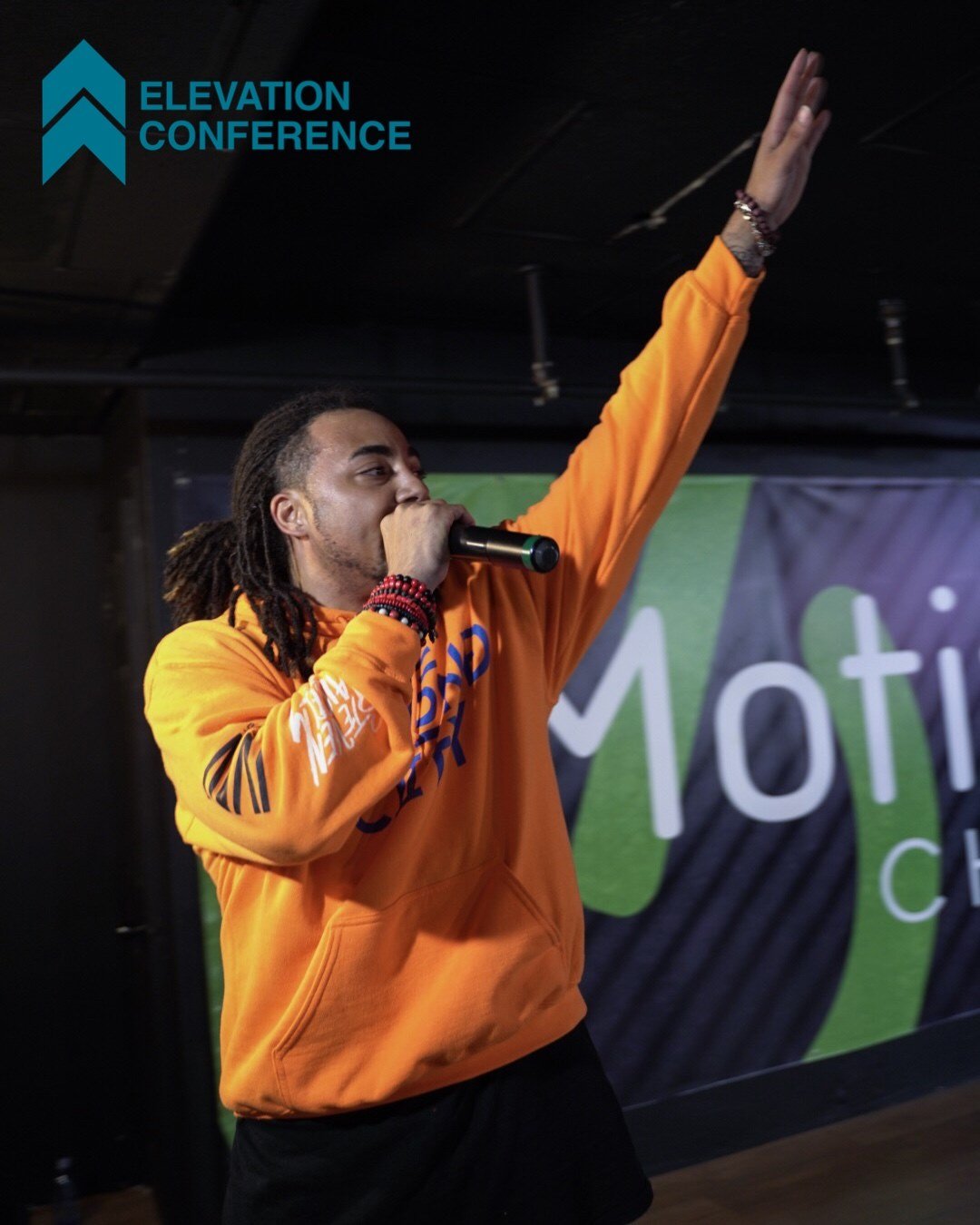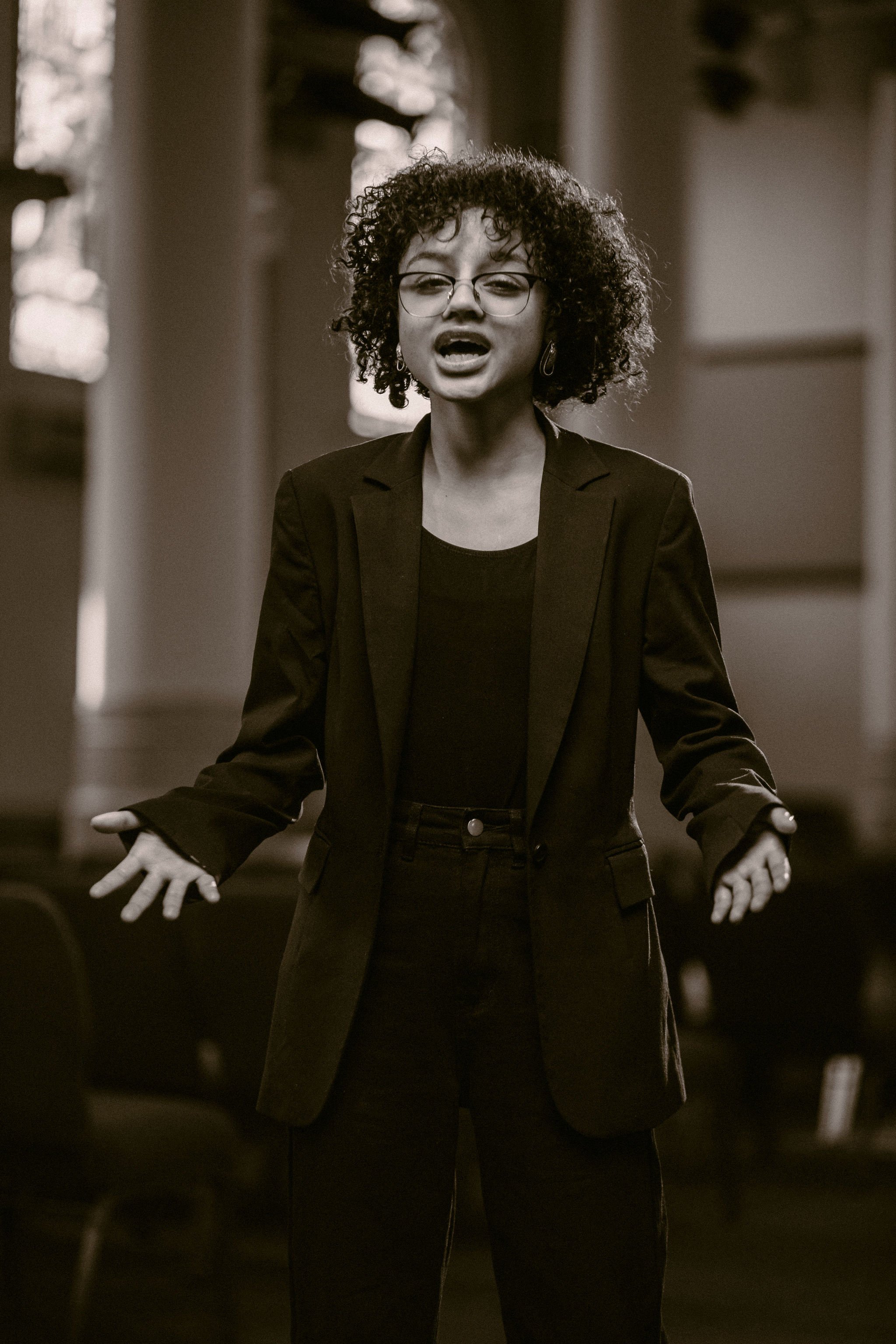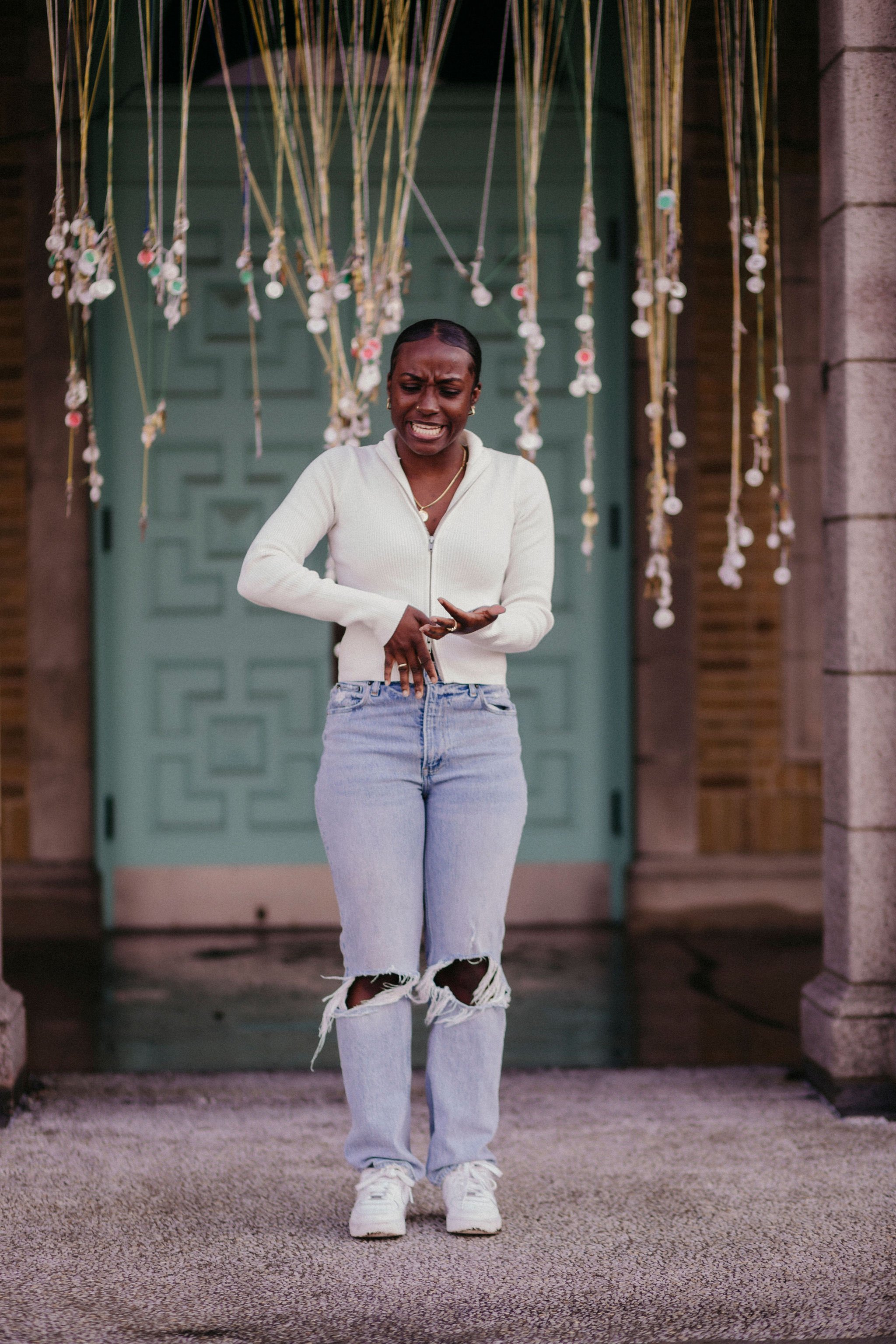Christian Creatives and the Church
Photography by R9 Foto for The Emmanuel Gospel Center
Christian Creatives and the Church
It’s time for the two to support each other.
by Hanno van der Bijl, Managing Editor, Applied Research & Consulting
Armani Alexis Acevedo is an artist, designer, entrepreneur, and hip hop artist. Everything he does is to glorify God, but at one point in his life, he just could not see a home inside the Church for his creative passion.
He is thankful for the spiritual foundation he received from his church growing up but he didn’t feel fully supported in his calling until recently. A lot of that has to do with the buy-in of his pastors, including Davie Hernandez, co-senior pastor of Restoration City Church.
“It definitely is an encouragement to know that your pastors support you in that way, from the little things, even sharing my posts, or my songs, or our collections — he's probably wearing one of our tees right now,” Armani said. “Those things really mean a lot.”
But Armani still hears parishioners voicing their disapproval: “I don’t think this glorifies God” or “This art is too loud.” These moments don’t come without pain as Armani invests hours and heart into his creative projects.
“As artists, I feel like we do see things a little differently and appreciate detail more and the commitment behind it,” he said.
Christian creatives like Armani intentionally pursue their vocations as believers and artists, actively integrating their faith and work.
They live in the tension of a Church trying to stay faithful in a changing world. They’re caught between competing visions of what the Church should look like and how it should operate.
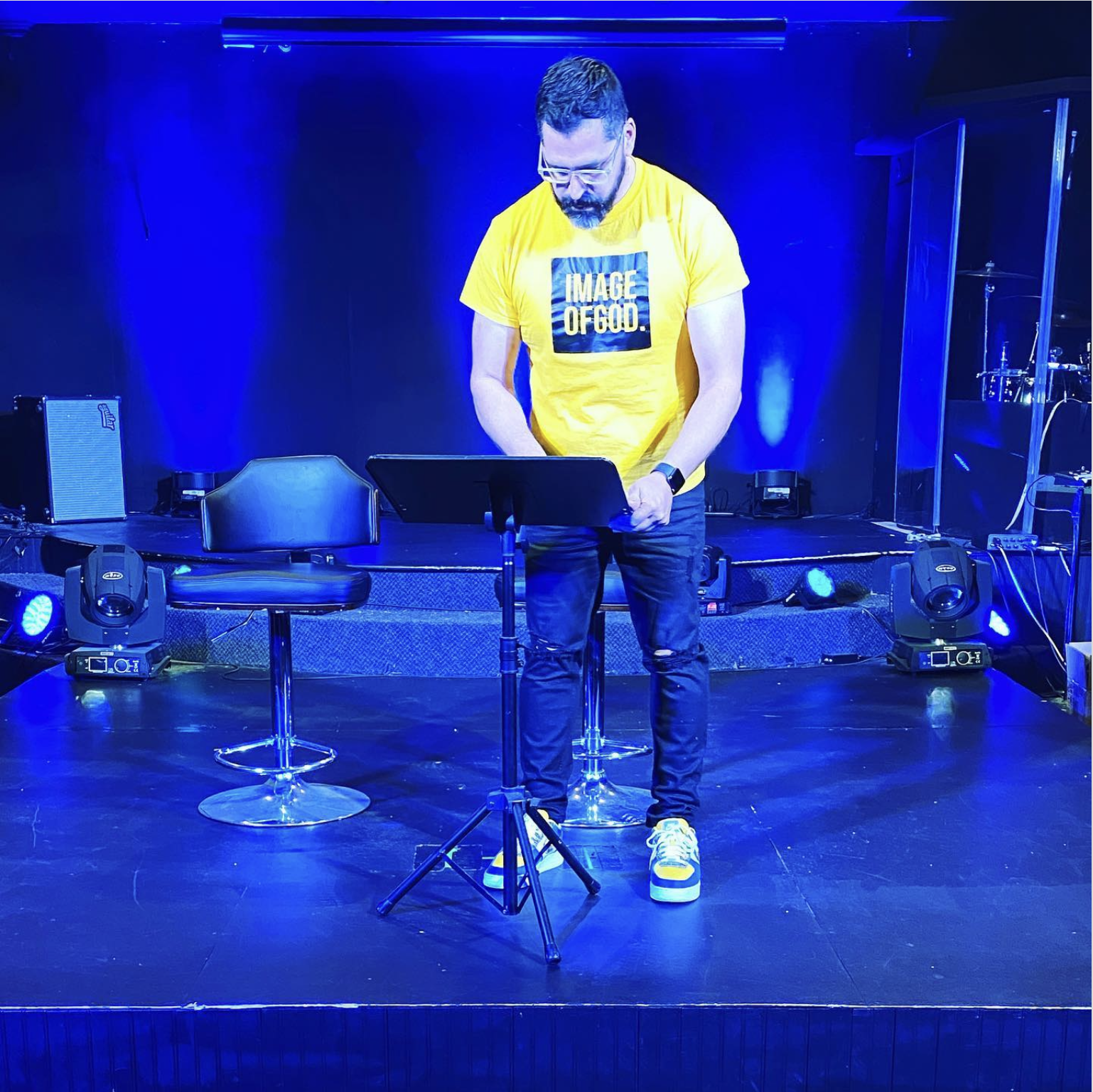



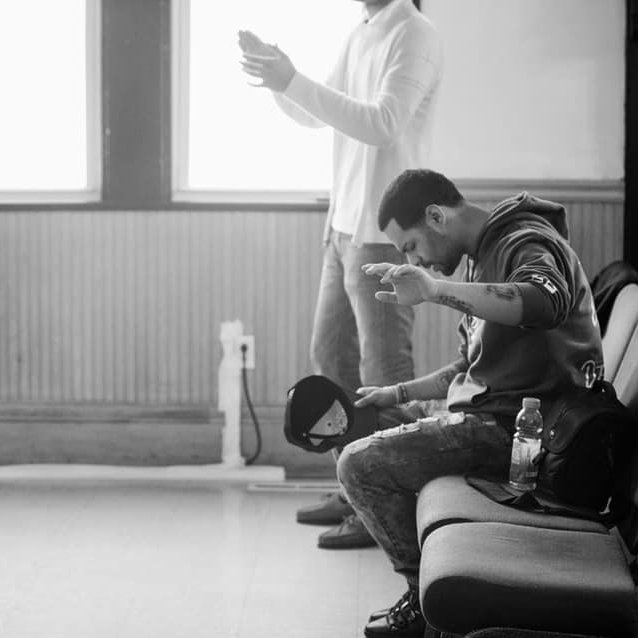
They don’t always feel seen. Many feel like spiritual orphans in a world that neither understands nor values their faith and a Church that neither acknowledges nor appreciates their gifts.
Some church leaders do see them. They say Christian artists are an untapped resource.
Pastor Valerie “Val” Copeland, pastor of Neighborhood Church of Dorchester, said God has given every Christian gifts and skills for a reason.
“Christian creatives sit in church without their gifts being used, without space being made for their gifts, while they sort of dry up on the vine,” she said. “If we need a singer or guitarist or drummer, we'll search them out. But where's the imagination to say if they are gifts that God has given you, then it's incumbent upon us to figure out how to make room for them?”
“Christian creatives sit in church without their gifts being used, without space being made for their gifts, while they sort of dry up on the vine.”
It hasn’t always been this way. Historically the Church has been a driving force for the arts, integrating it in its worship, teaching, and architecture. In some places marked by post-Christianity, the churches may be empty but their beauty continues to bear witness.
The arts have the power to speak to people in ways that sermons can’t. The Christian creatives sitting in the pews could help address some of the biggest challenges facing churches today. This is an opportunity for churches to support creatives while at the same time mobilizing them for mission.
In an effort to help churches do that, we connected with Christian creatives and pastors to learn from them how churches can support and equip the artists sitting in the pews.
A creative God
Christian creatives say they draw inspiration from the Creator — and that churches should too.
“God is the first artist,” Pastor Val said. “The beauty of art and the drama of art calls our hearts to something greater than ourselves and reminds us that God’s design is intentional: the way that he uses color, the way that he uses the drama of thunder and lightning, the way that he calls us to be creative in how we love the world.”
God’s creation is not only beautiful, it's also unique. He made humans in his image to reflect his creativity. For Michael “Mike Mack” McPherson, founder of Elevation Conference, the rich diversity of God’s created order is the “essence of creativity.”
“God is the first artist. The beauty of art and the drama of art calls our hearts to something greater than ourselves and reminds us that God’s design is intentional.”
“He could have easily made every single bug the same — every single ladybug could have the same amount of spots, and he decided that he would splatter and make them all look so different and so unique,” Mike Mack said. “But then we come into the Christian world and we look at art and music and we're like ‘It's supposed to sound like this.’”
Creatives embrace the call to “sing a new song.” They thrive on expressing themselves through their work, improvising to bring something new out of the old.
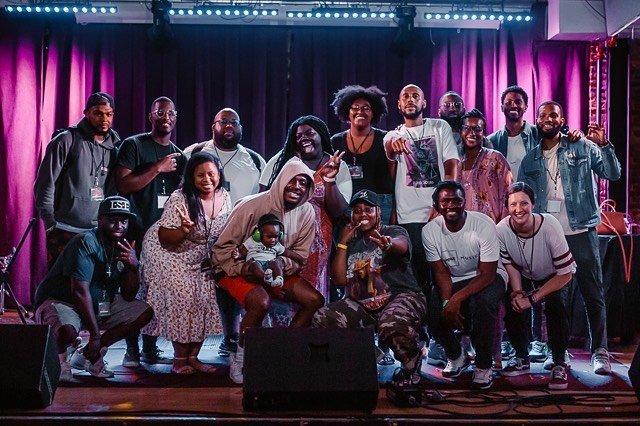
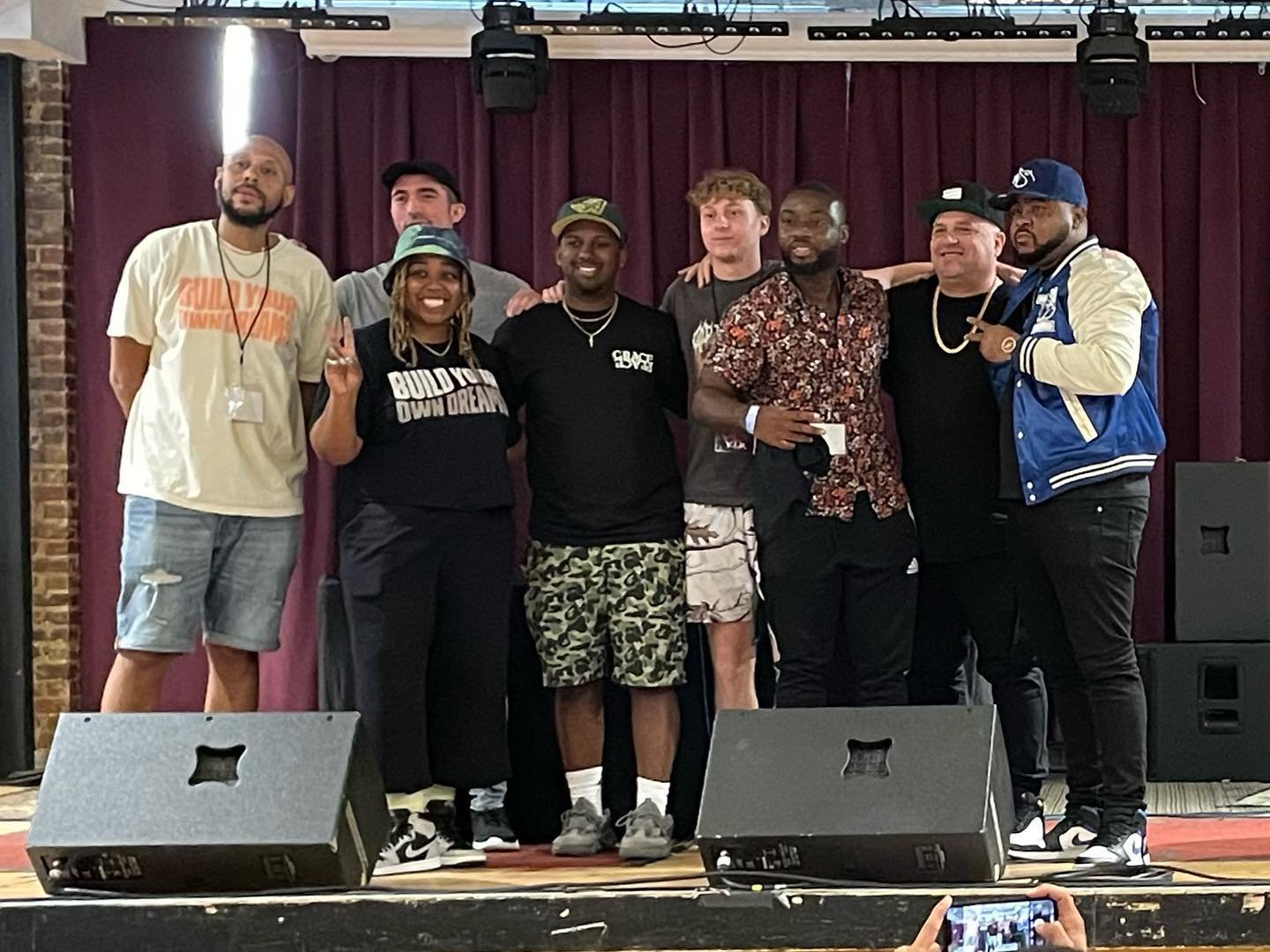
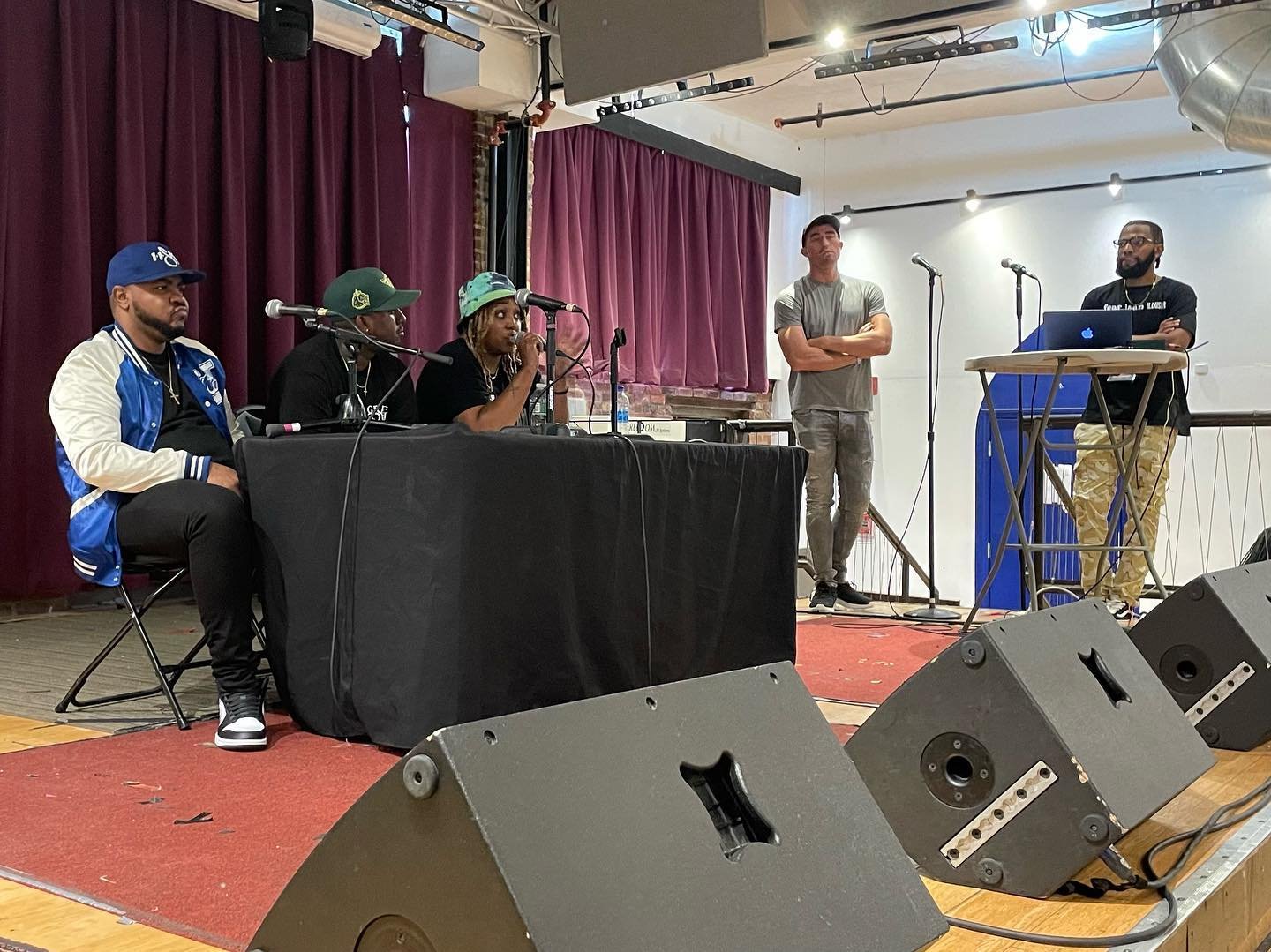
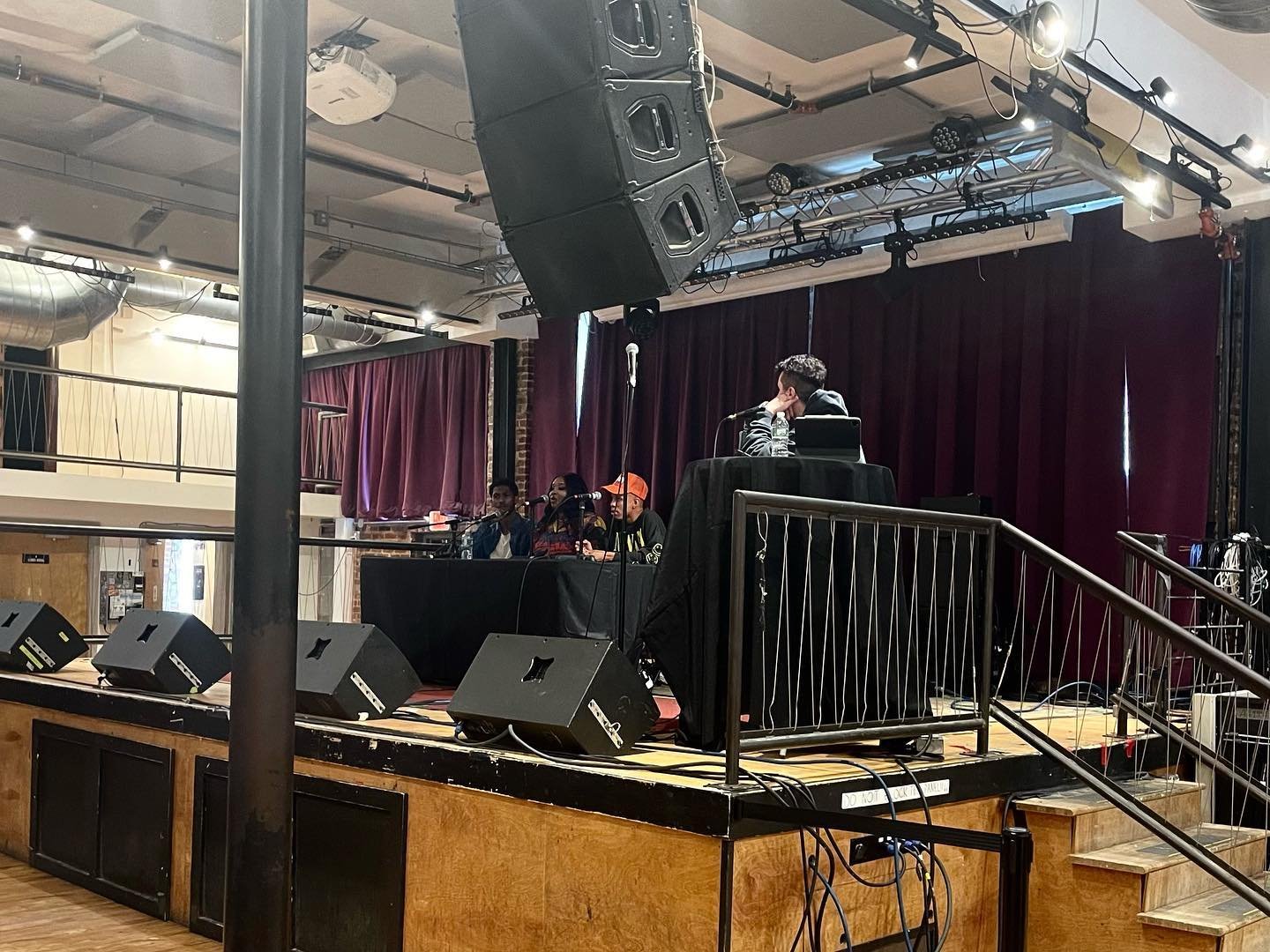
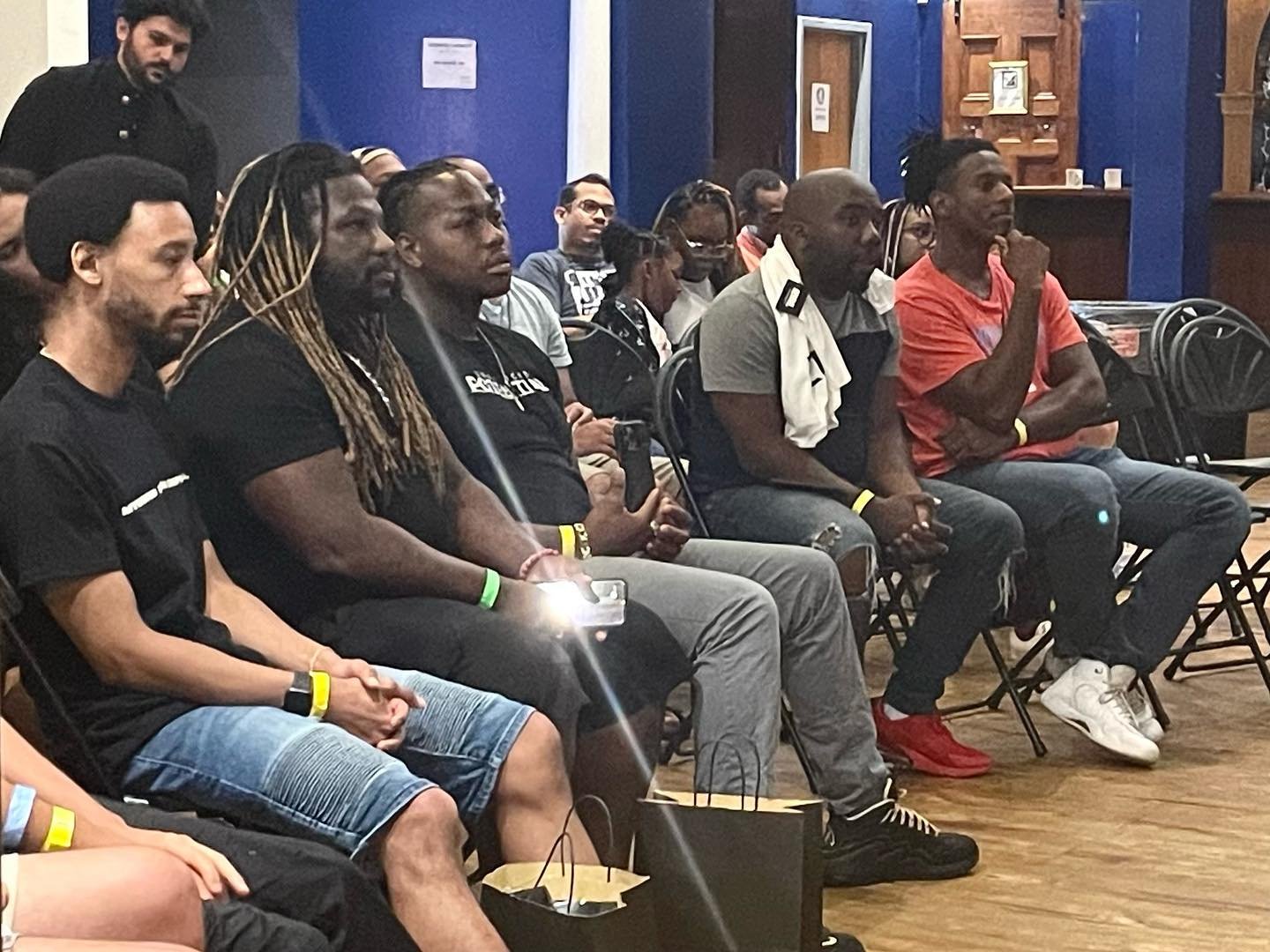

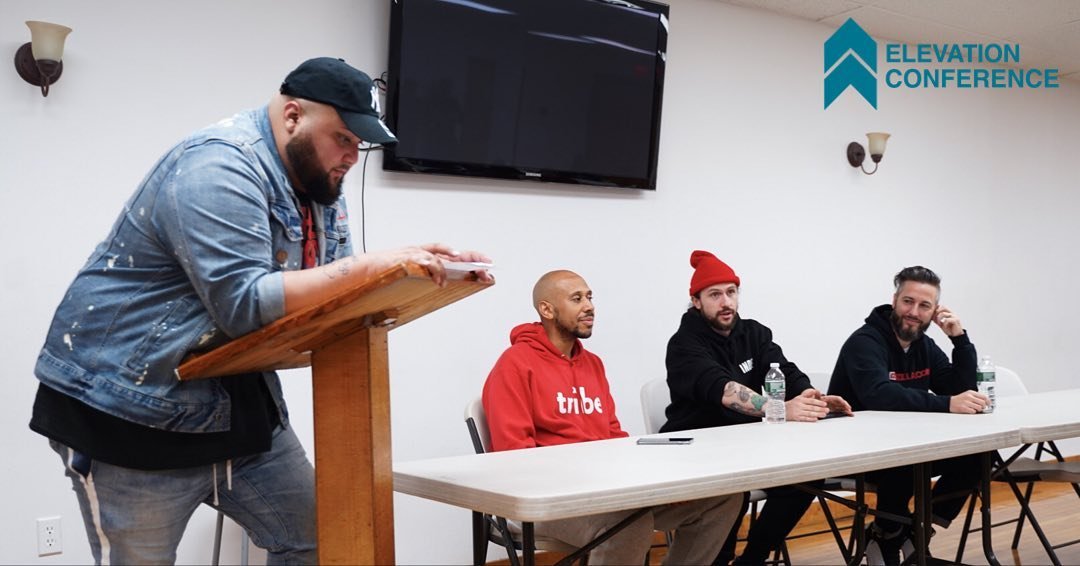
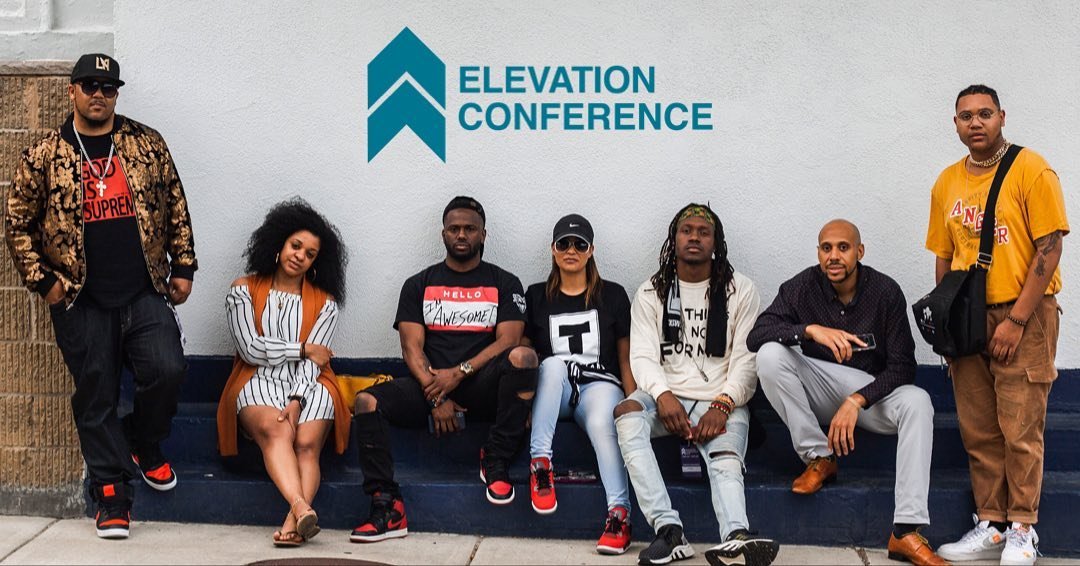
Many creatives feel that a lot of churches function exactly the opposite way. The familiarity of traditions provide safety and stability; however, if churches hold them too tightly there can be little room for something new. The tension between creative expression and commitment to tradition can often be at odds.
“The overarching problem is that the Church is terrified of so much. The Church creeps around so much,” Mike Mack said. “The Church still has — despite what Paul said — a 'taste not, touch not' mentality (Col. 2:20-23) about almost everything that could be considered sin and is probably not actually sin.”
Christian creatives often face the impossible task of producing art that checks all the boxes for churches theologically and for the world aesthetically. Placing restrictions on artists that don’t concern the core message of the gospel chokes creativity.
A creative Church
The COVID-19 pandemic forced churches to get creative. The crisis compounded the new challenges with long-standing issues that surfaced and threatened division. Many people did not return to worship services after lockdown measures were lifted, and increasingly younger generations don’t want anything to do with the institutional church.
To minister in this new reality, Pastor Val said “our missiology has to shift.”
“I talk to a lot of folks who are just really hanging onto the Church by a string,” she said.
Christian ministry is often geared to preaching that appeals to the head, but it is missing out on the power of the arts to reach the heart.
“This is definitely an area that the Christian Church has fallen asleep on,” Pastor Val said. “We've sort of limited God to the area of our brain: think about it, write about it, talk about it.”
Pastor Valerie Copeland
But with the state of the broader culture, this will not be enough to communicate the gospel effectively to many people. The call of Jesus’ Great Commission is to “go” to people instead of telling them to “come” to the Church.
“I think too often we're waiting for people to meet our criteria — and it's completely backwards,” Pastor Val said. “This idea — I'm willing to do whatever it takes to tell you about God: a God that loves you, a God that inspired all of this beauty, and a God that finds beauty in you — I'm willing to do whatever it takes. You've got to be willing to do whatever it takes.”
Pastor Val said Grace Chapel’s passion week display was a moving example of how God can use the arts to “preach” the message of the gospel. The display included beautiful art installations with quiet spaces for reflection.
“The last installation is just an empty tomb, and I can't tell you how that thing just brought me to my knees,” she said. “I've heard many sermons about the empty tomb that didn't bring me to my knees. Seeing that empty tomb brought me to my knees.”
In addition to proclaiming the Good News in different ways, Pastor Val said Christian creatives have the opportunity to help heal the fallout from broken or false views of God. Images have power, and when they’re not created to look like the people they’re meant for, it can have a lasting negative impact. Creatives can step in to redirect the image and narrative that disaffected people have of God.
“Give them platform, stop hiding them, stop discouraging them, be more encouraging, give them opportunities to present — especially on Sunday mornings. If you look around your congregation, there’s probably people who do all sorts of really cool, really unique things.”
“One of the ways that Christian creatives can be helpful is in bringing these important issues to light but also in correcting the narratives that have been associated with these images, and redirecting the narrative towards what is true and who we are as Christian believers,” Pastor Val said.
For churches that want to take the risk and change their approach to ministry, it will likely mean a painful period of adjustment, she said. But church leaders who worry about how to reach the unbelievers in their community may not realize that God has already provided them with the answer right there in the pews.
God has equipped Christian creatives in their congregations with gifts to preach the beauty of the gospel. But they must be empowered, not exploited.
“Give them platform, stop hiding them, stop discouraging them, be more encouraging, give them opportunities to present — especially on Sunday mornings,” Mike Mack said. “If you look around your congregation, there's probably people who do all sorts of really cool, really unique things.”
Creatives have their own ideas for how churches can begin to support them as they live out their calling to glorify God. They stress that this will mean a change in the usual mindset and approach to ministry. Of the many ways they can help, churches can start praying and thinking creatively about how they approach their finances, building space, and ministry staff.
Creative with support
One of the basic ways churches can begin to think creatively about equipping the artists in their pews is by supporting them financially.
An economy shaped by modern technology and social media has conditioned us to expect things to be free. Coupled with the tendency in churches to spiritualize volunteerism as Christian service, this dynamic puts Christian creatives in a difficult spot. They’re often expected to use their gifts and skills for free. And not complain about it.
“One of the things that does concern me is the inability for creatives, in general, particularly Christian creatives — particularly Christian creatives of color — to make a living,” Pastor Val said.
“We’ve got to start seeing people as an investment in the kingdom versus their output as the investment.”
It’s not fair the way churches impoverish Christian artists as they pursue their ministries, Pastor Val said.
“Christian creators contribute so much more to our economy than they get back,” she said. “They contribute so much more to the economy of the Church than they get back.”
When churches exploit the work of their people, it compromises the Church’s witness to the world.
“Justice starts in the house of the Lord. We cannot be out there fighting for justice and defending the rights of the poor and the exploited and then be exploiting people within the house of the Lord,” Pastor Val said. “We've got to start seeing people as an investment in the kingdom versus their output as the investment.”
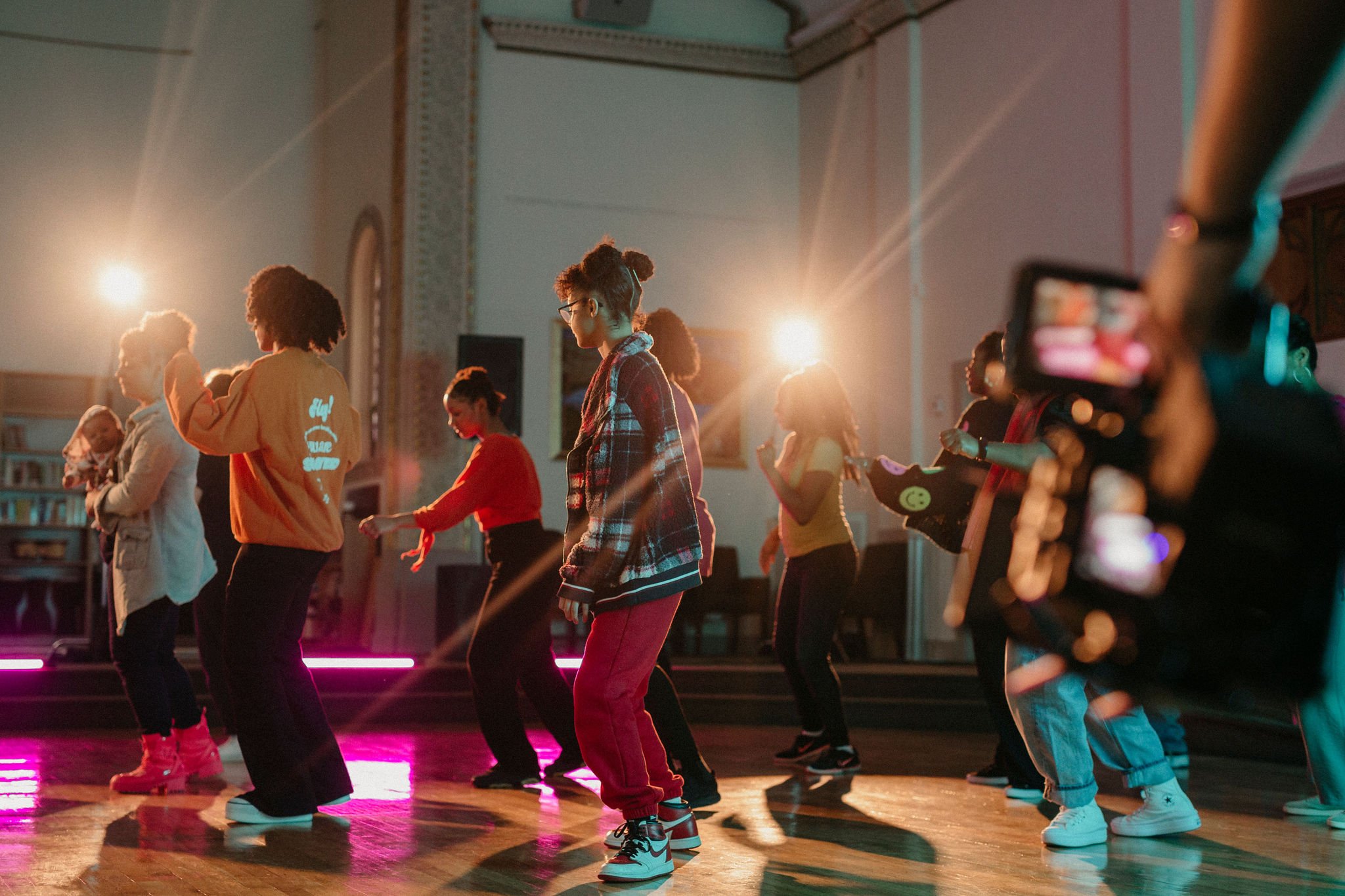
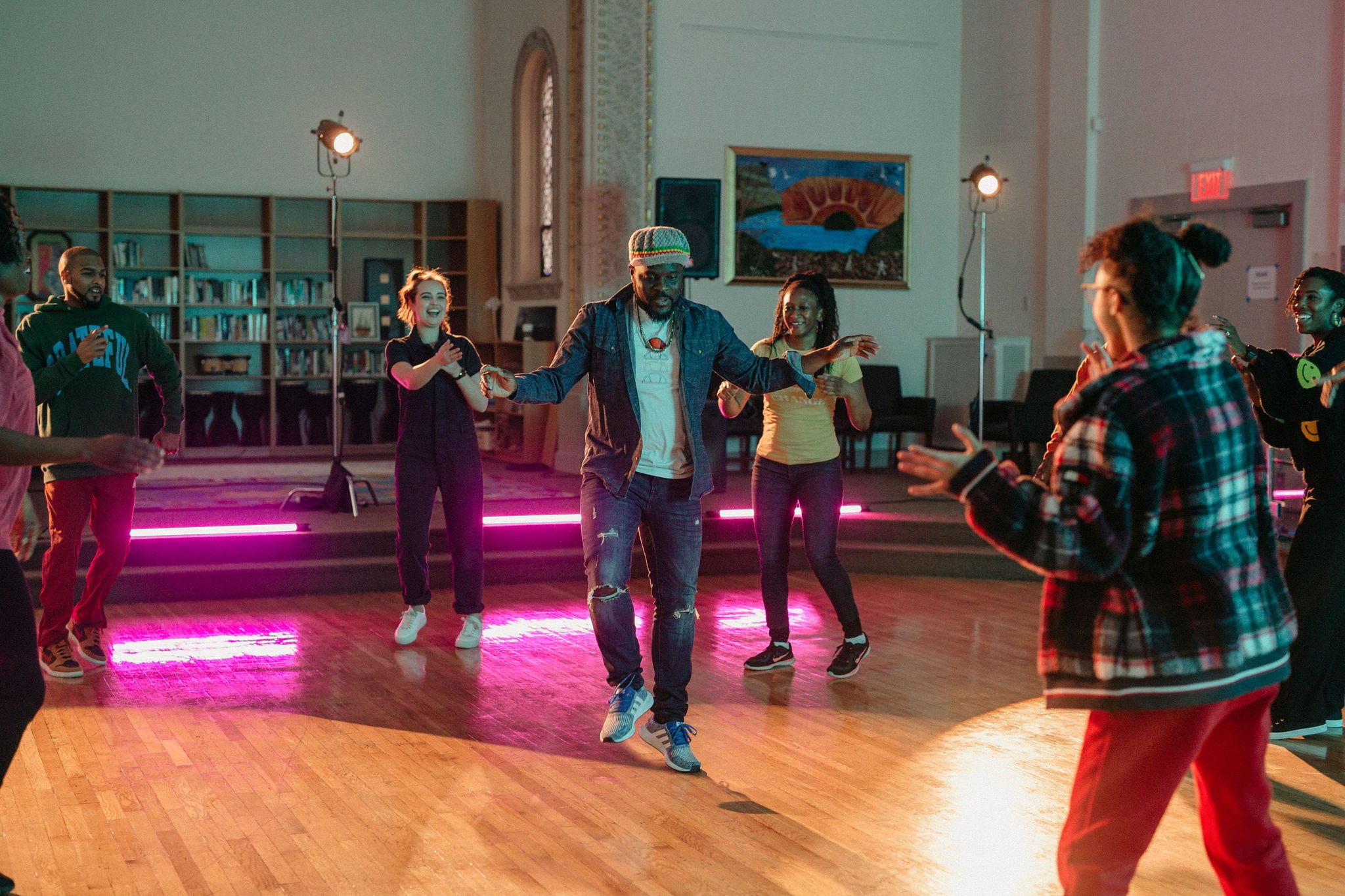
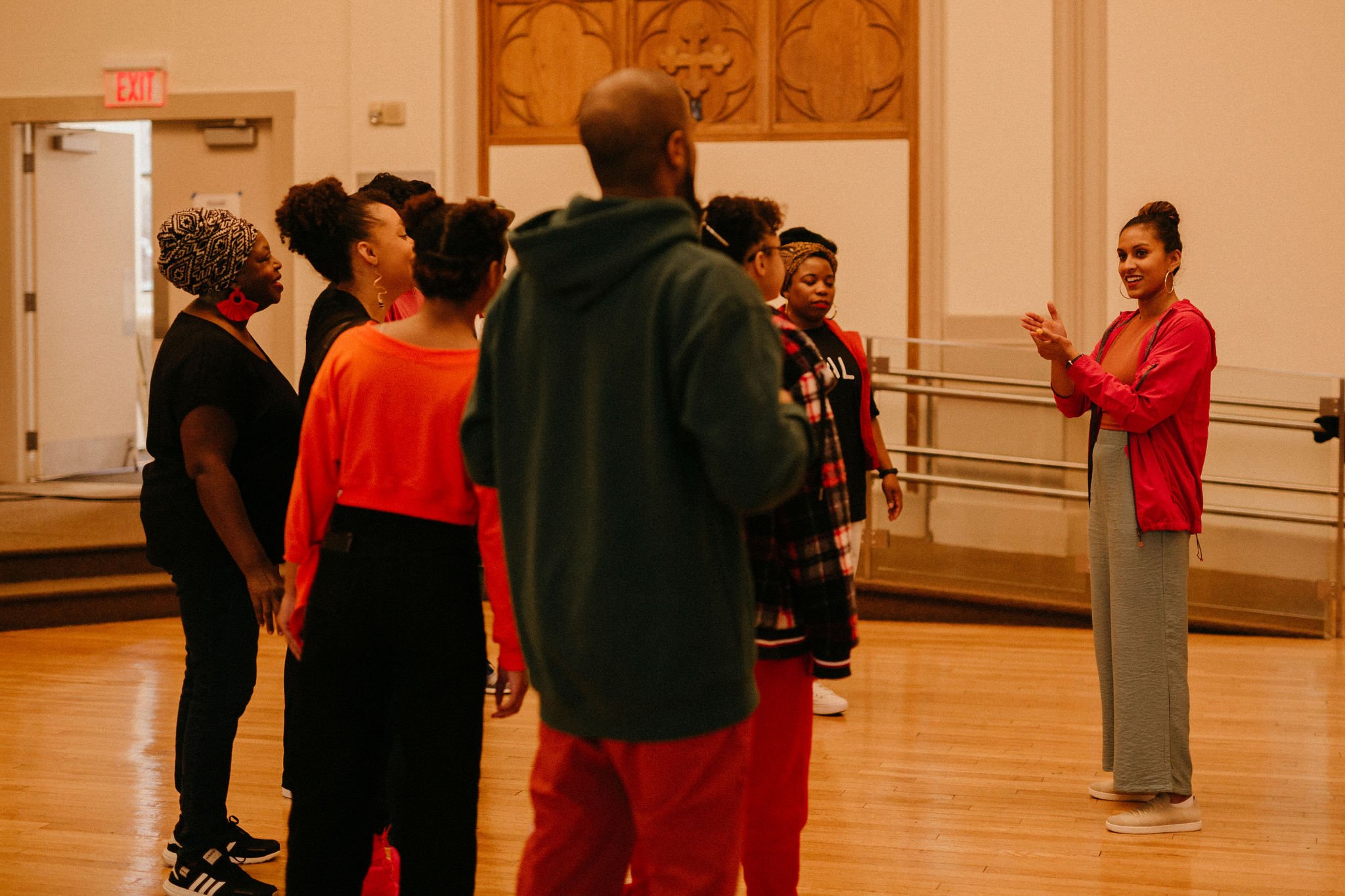
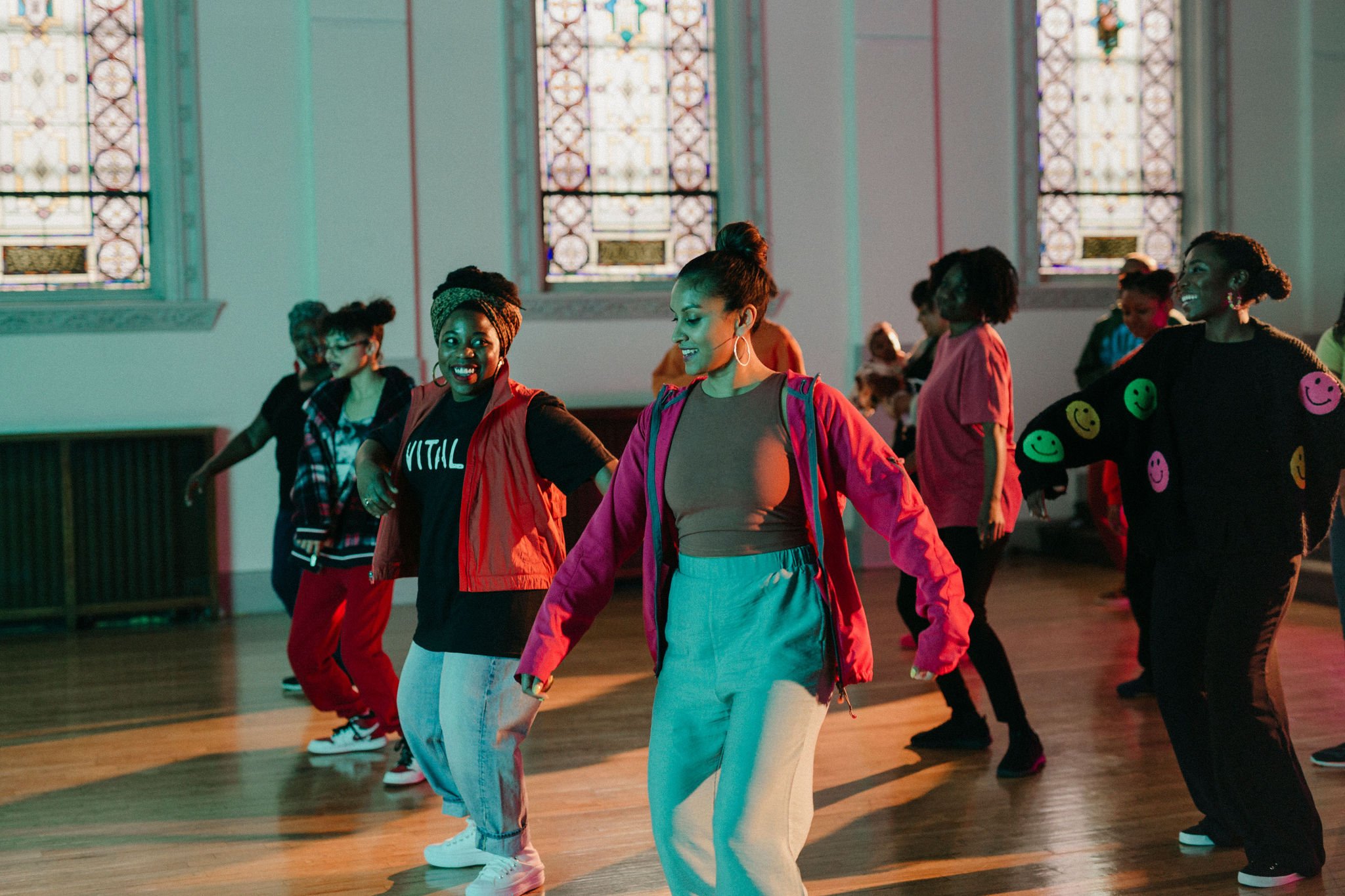
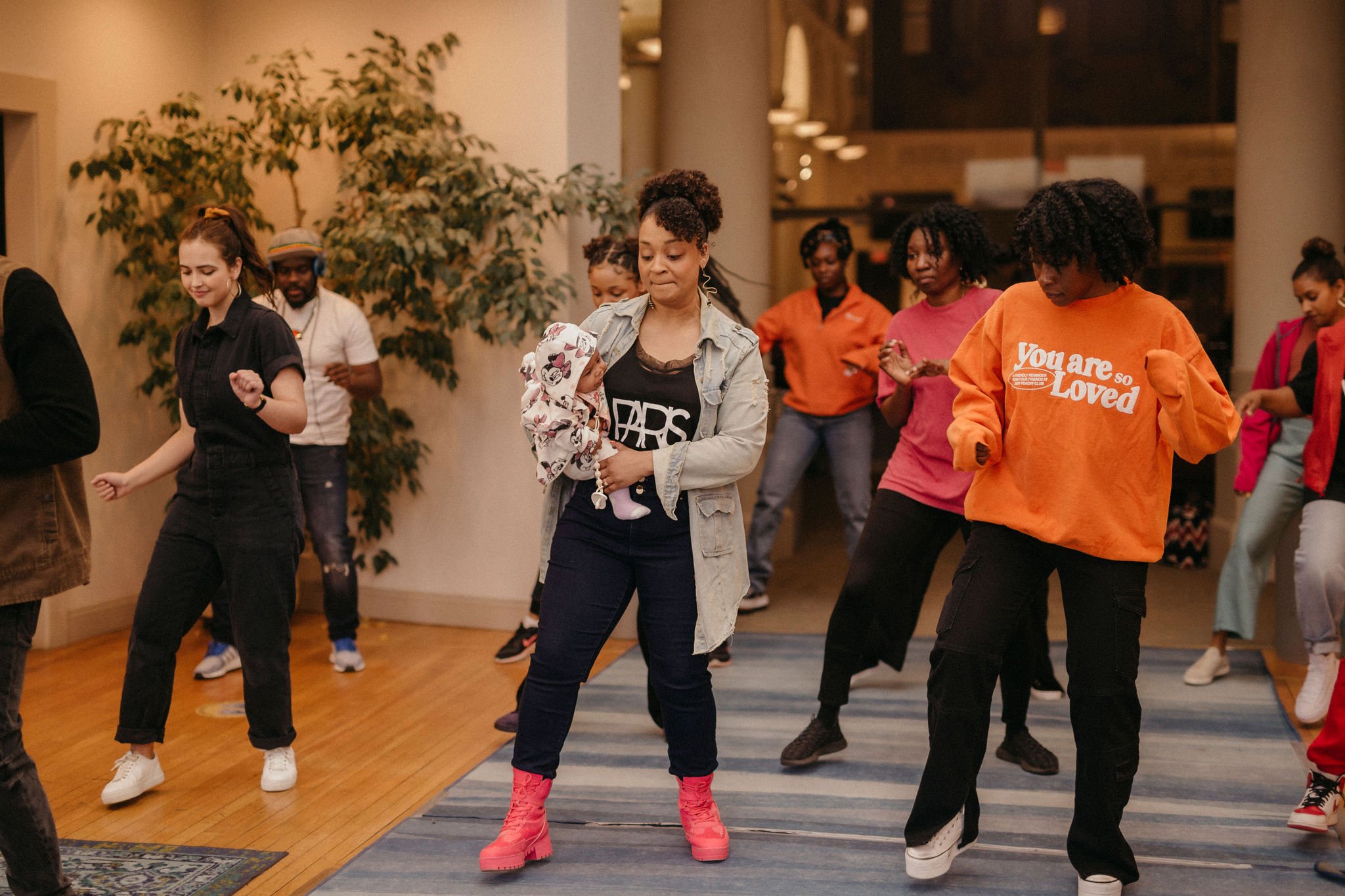
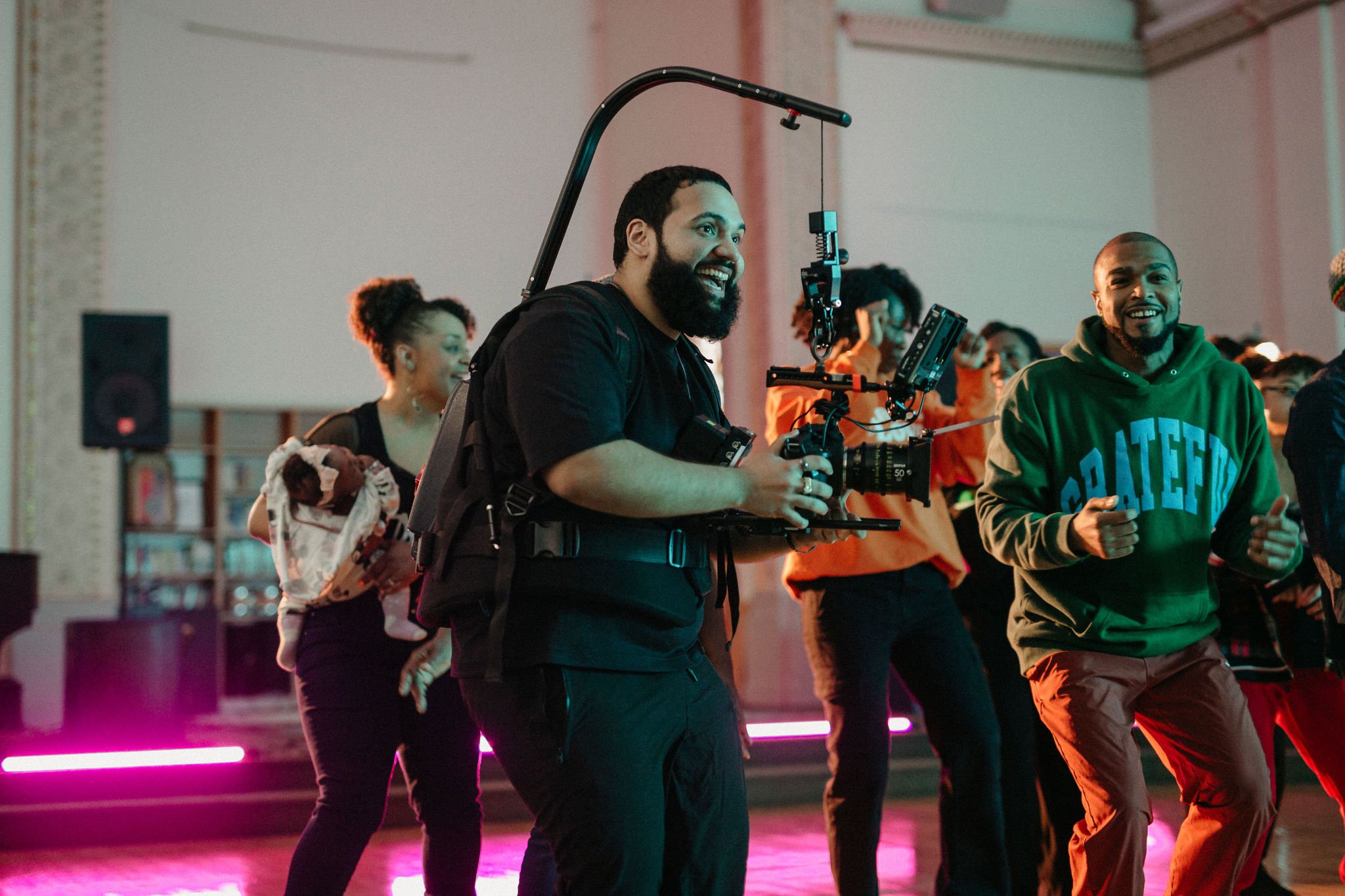
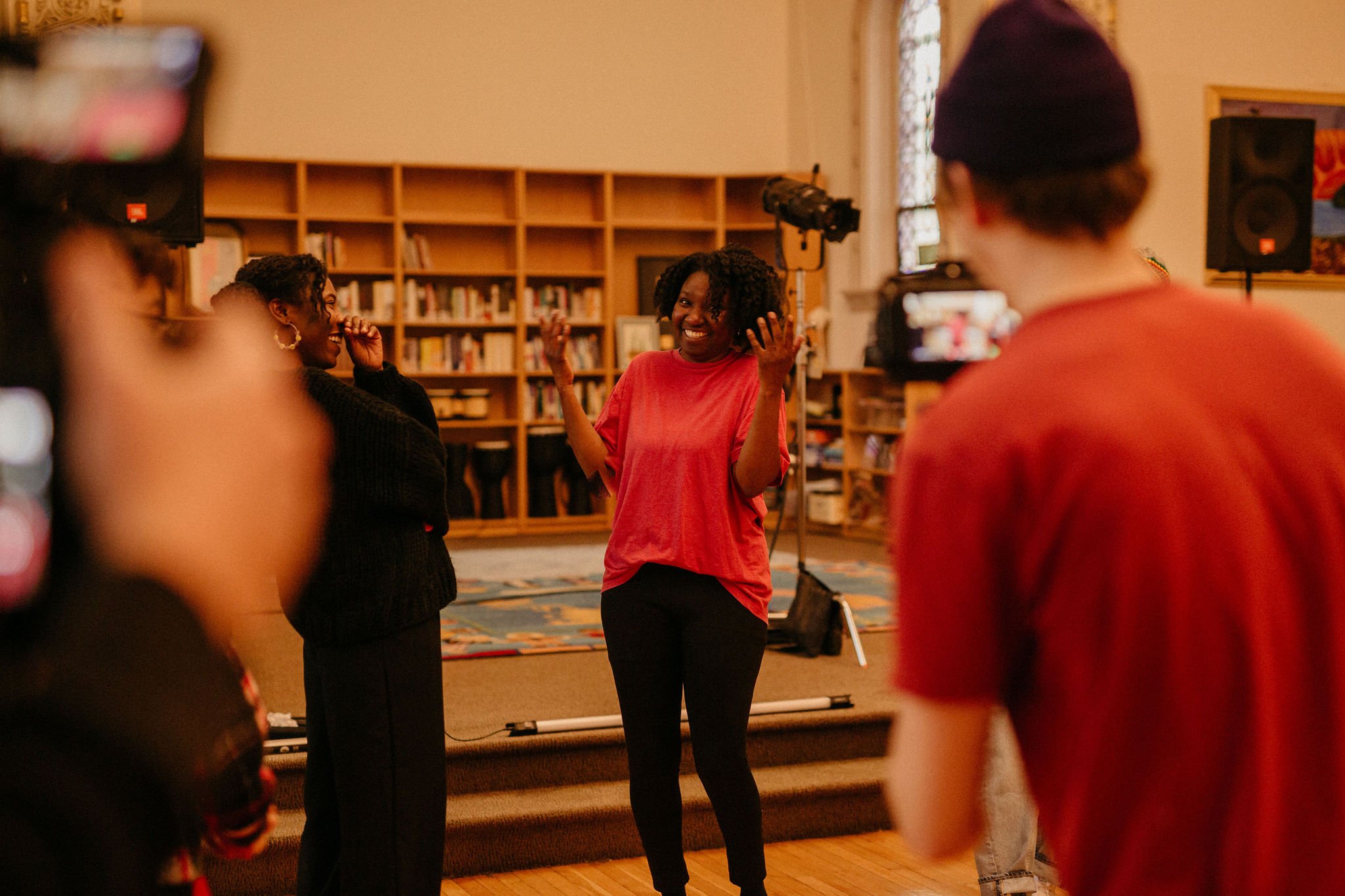
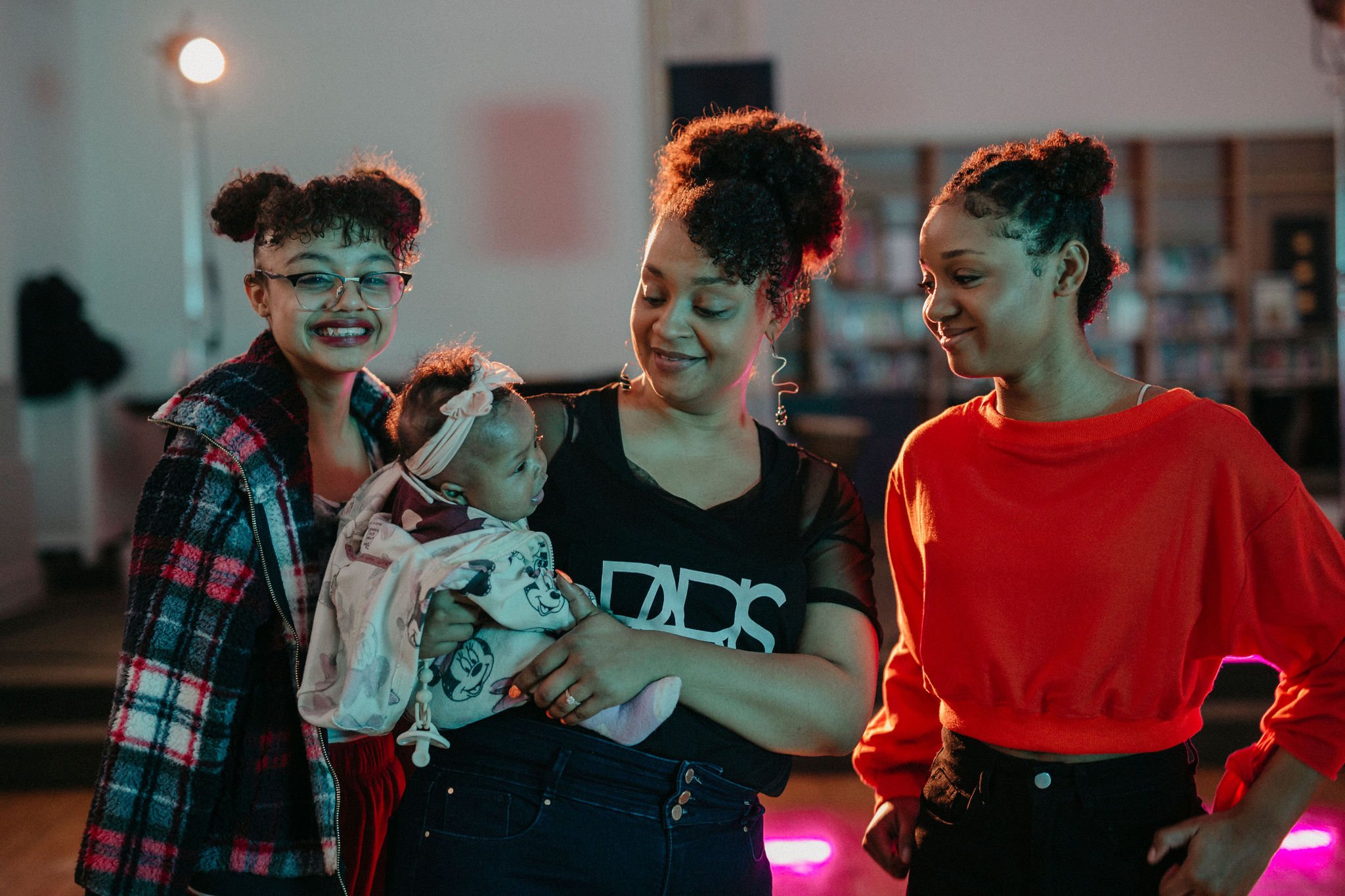

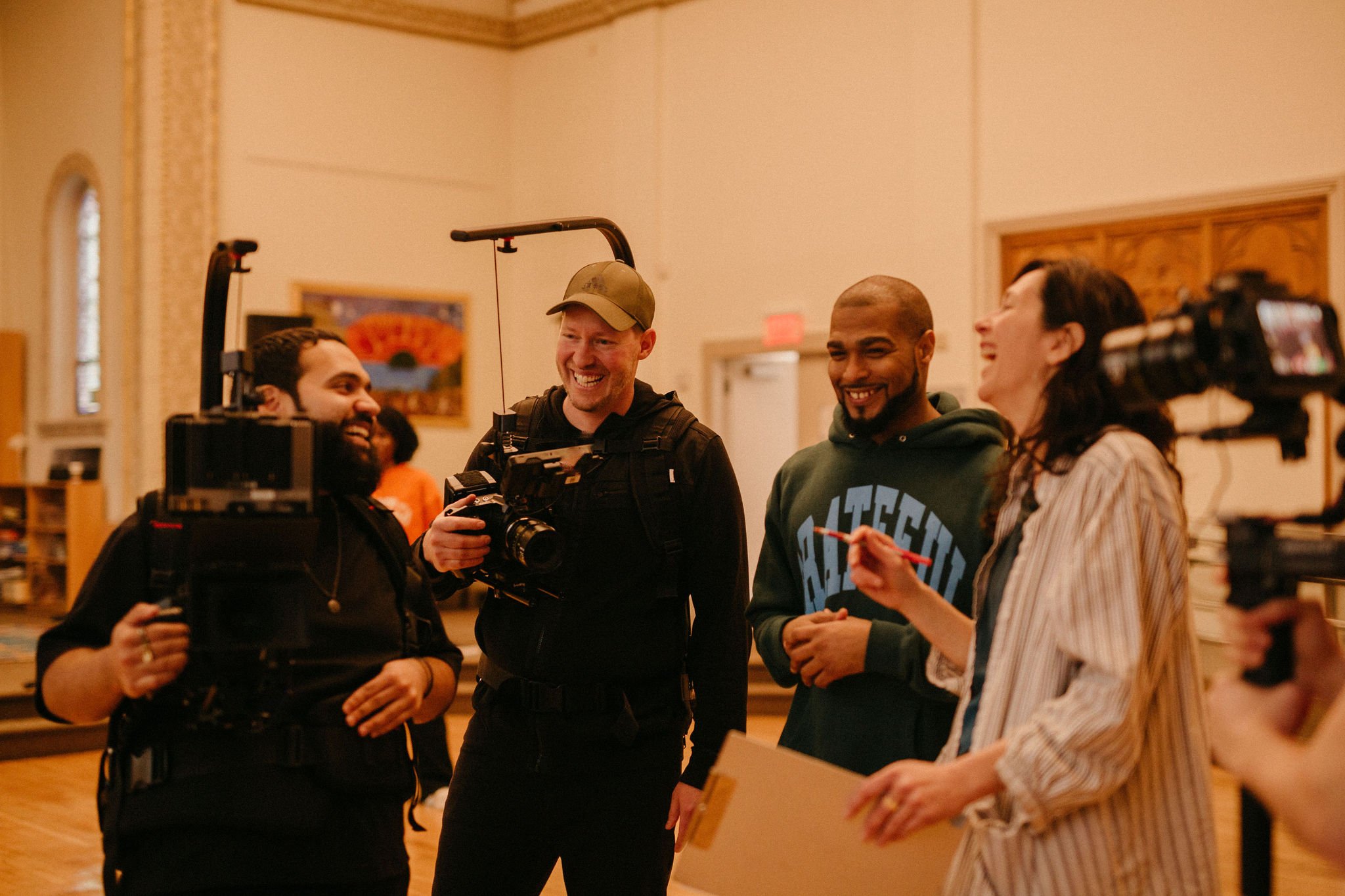
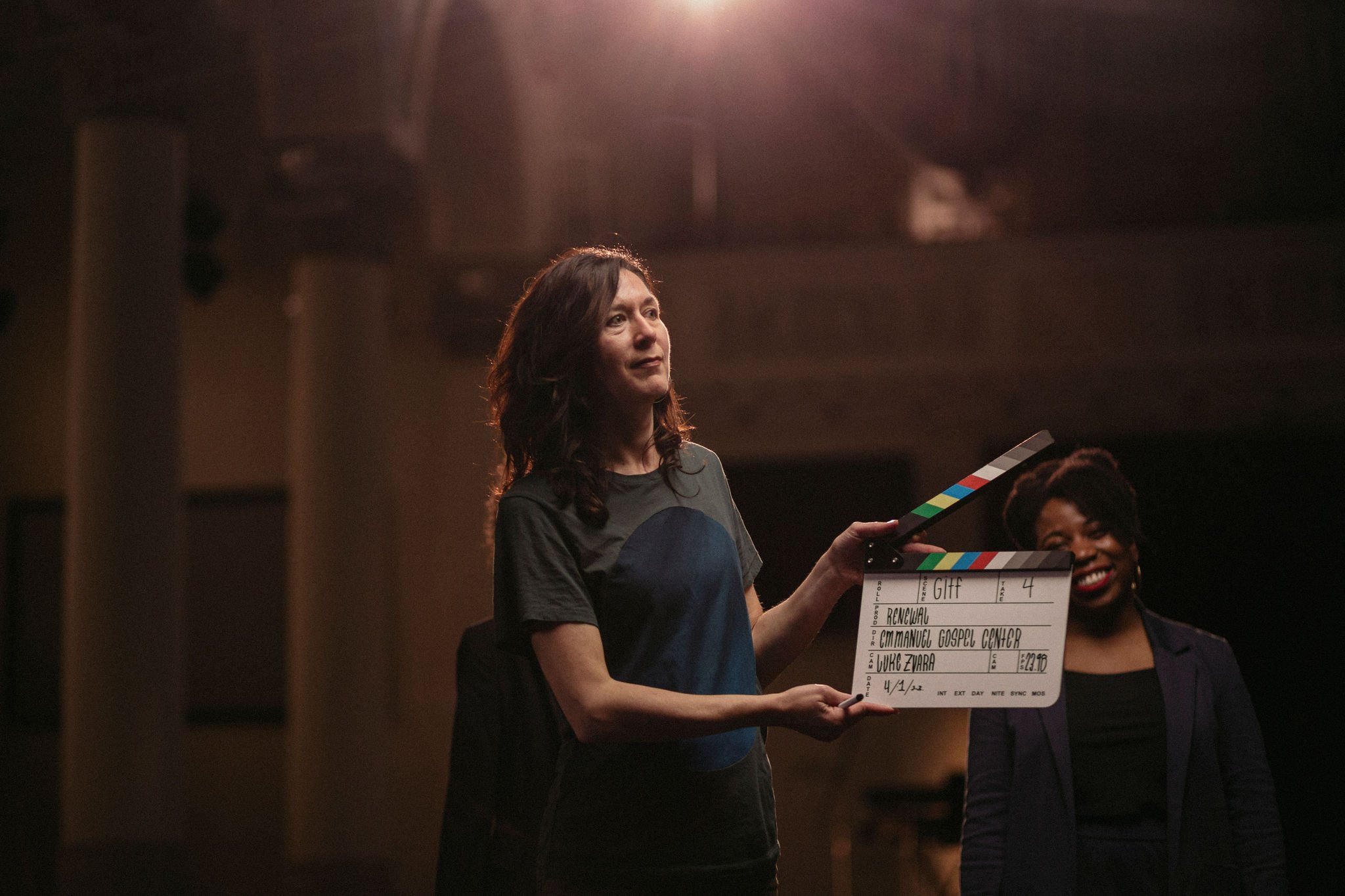
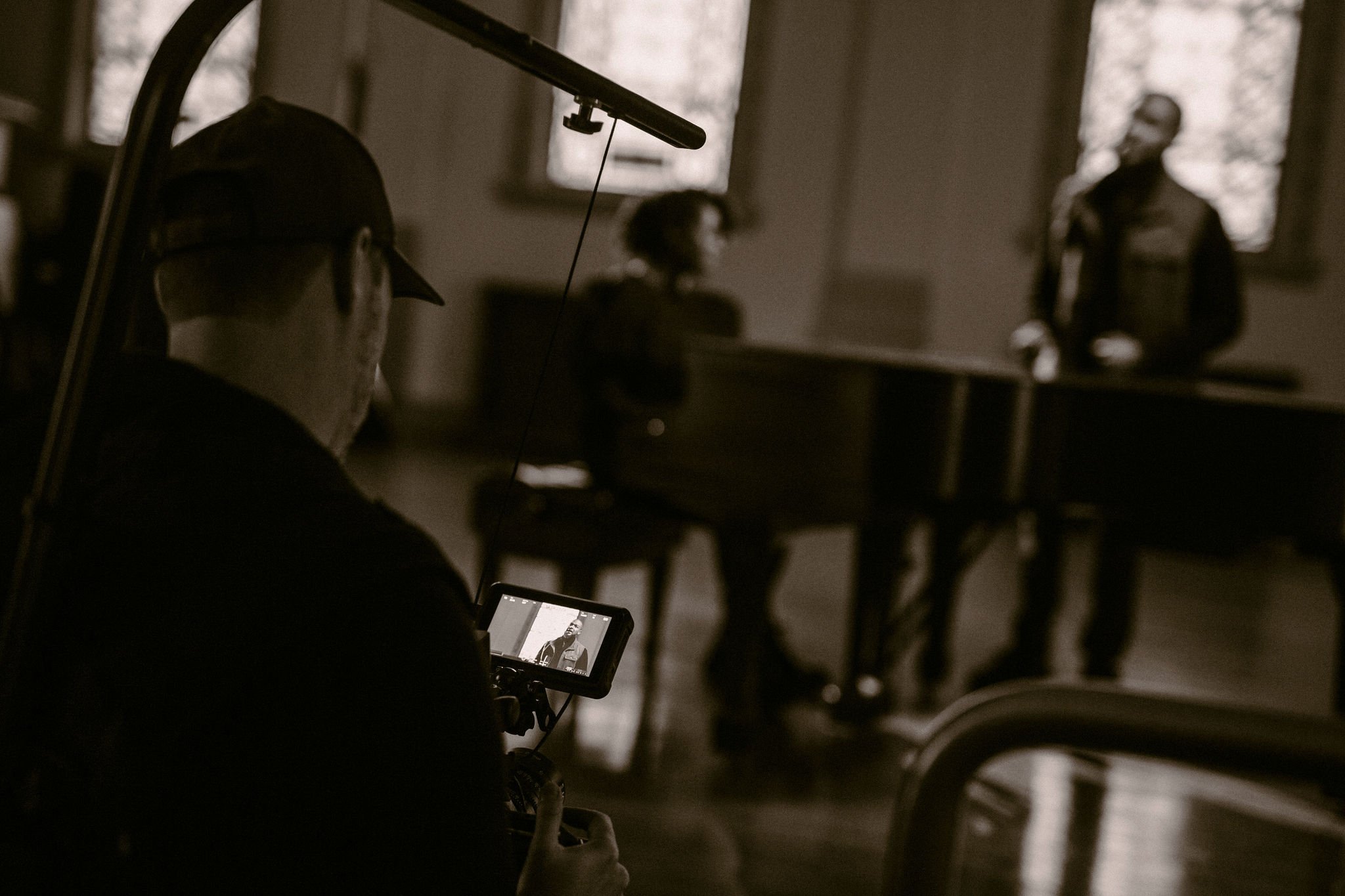
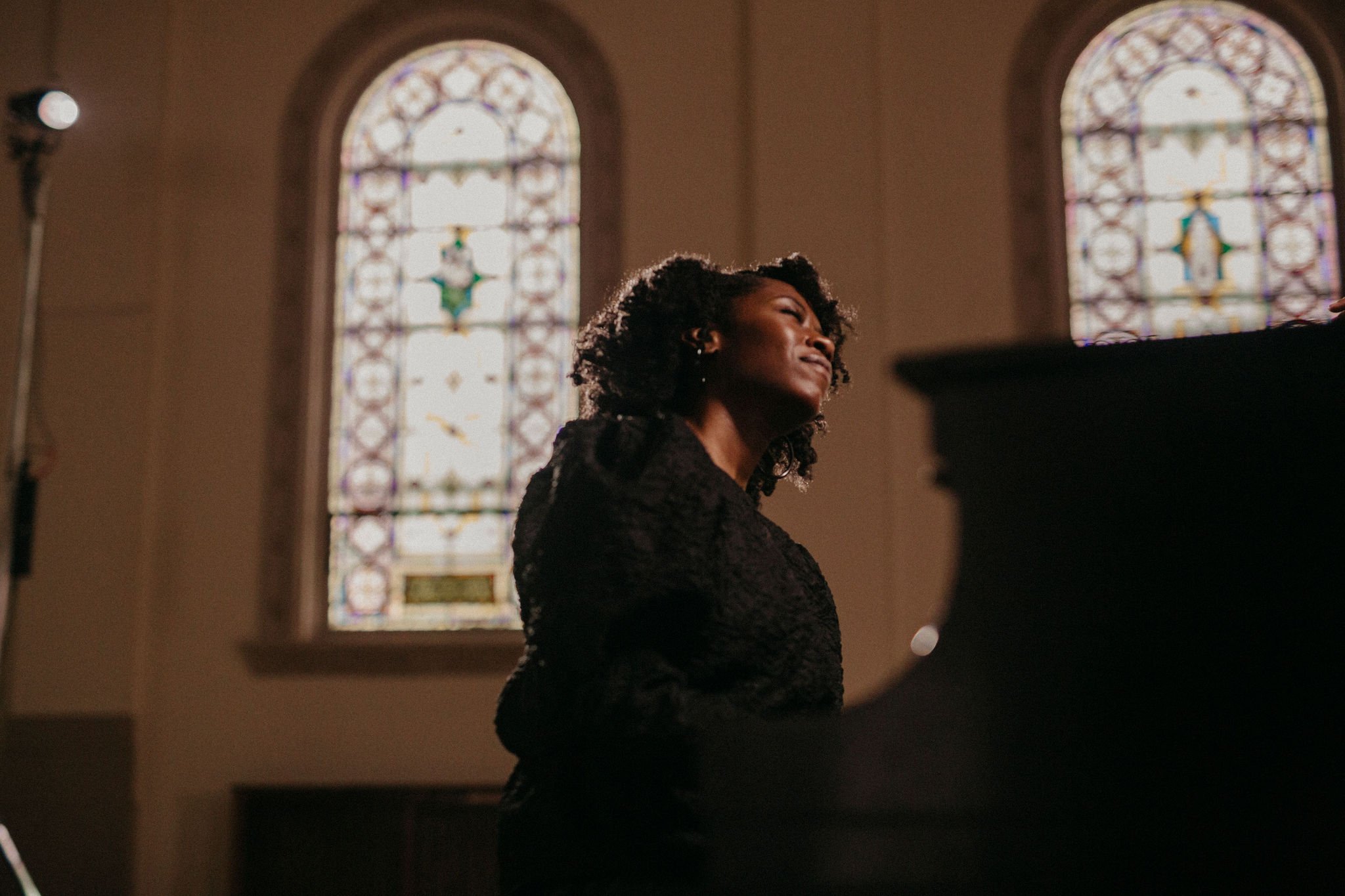
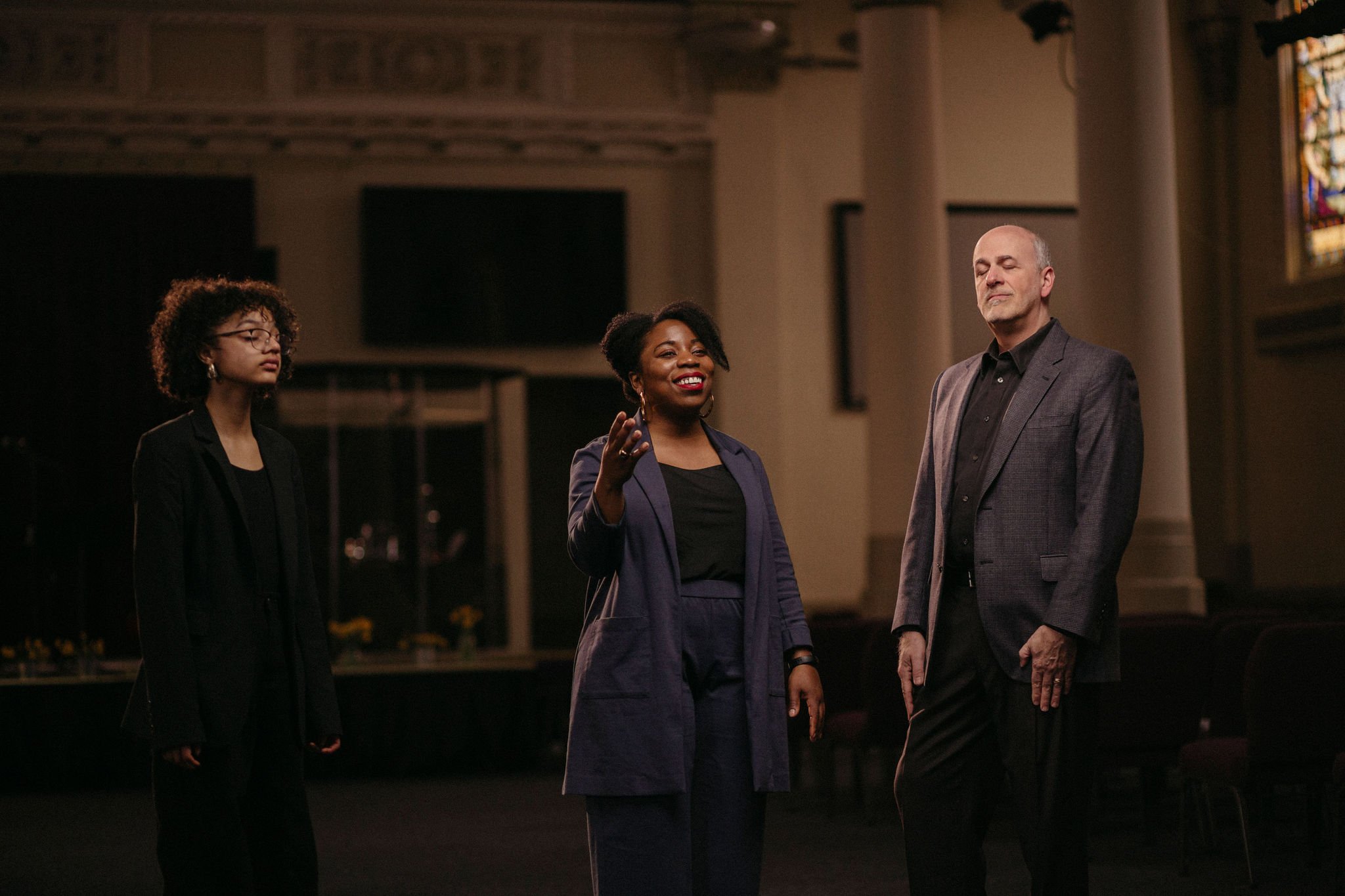
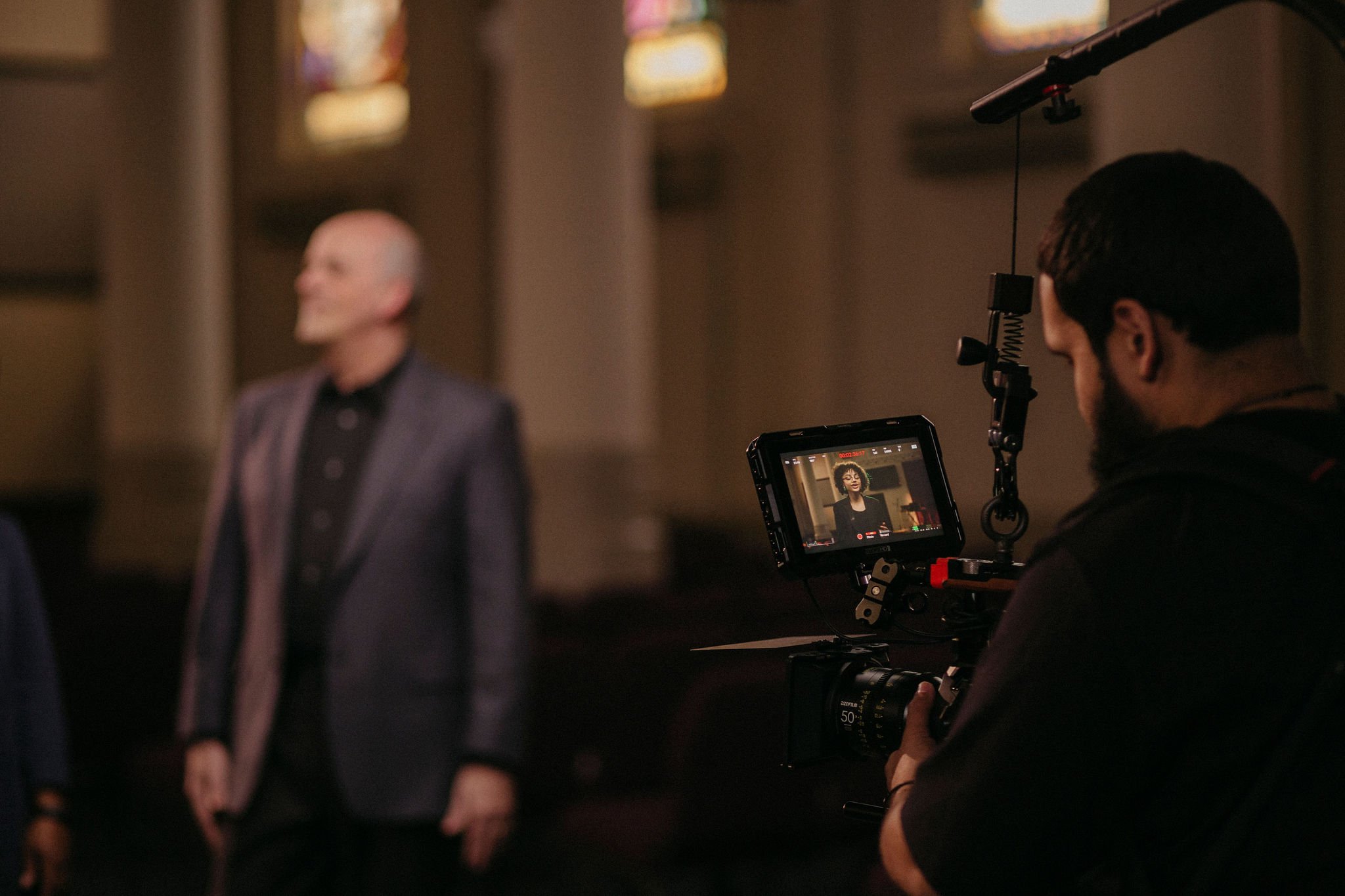
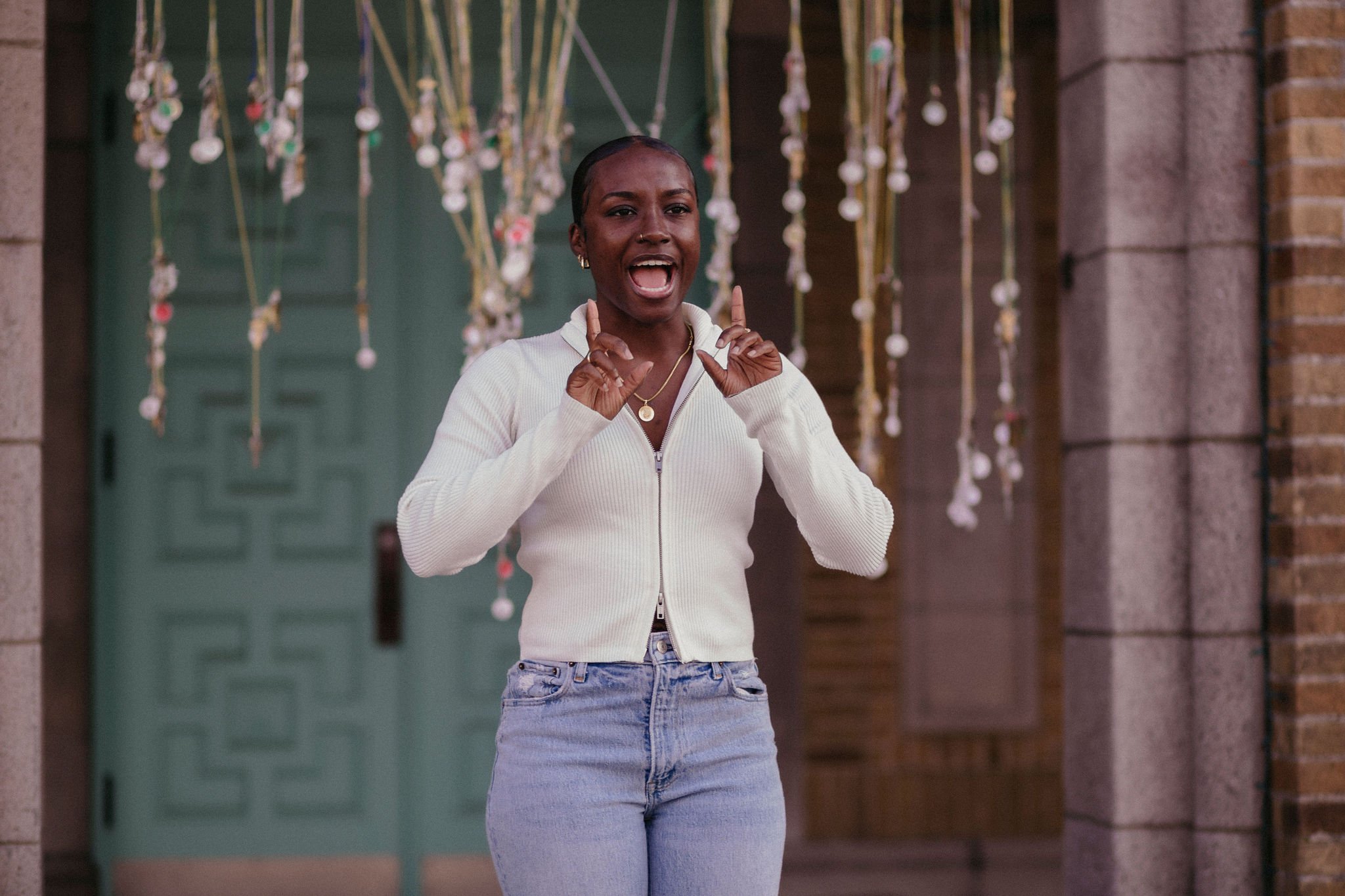
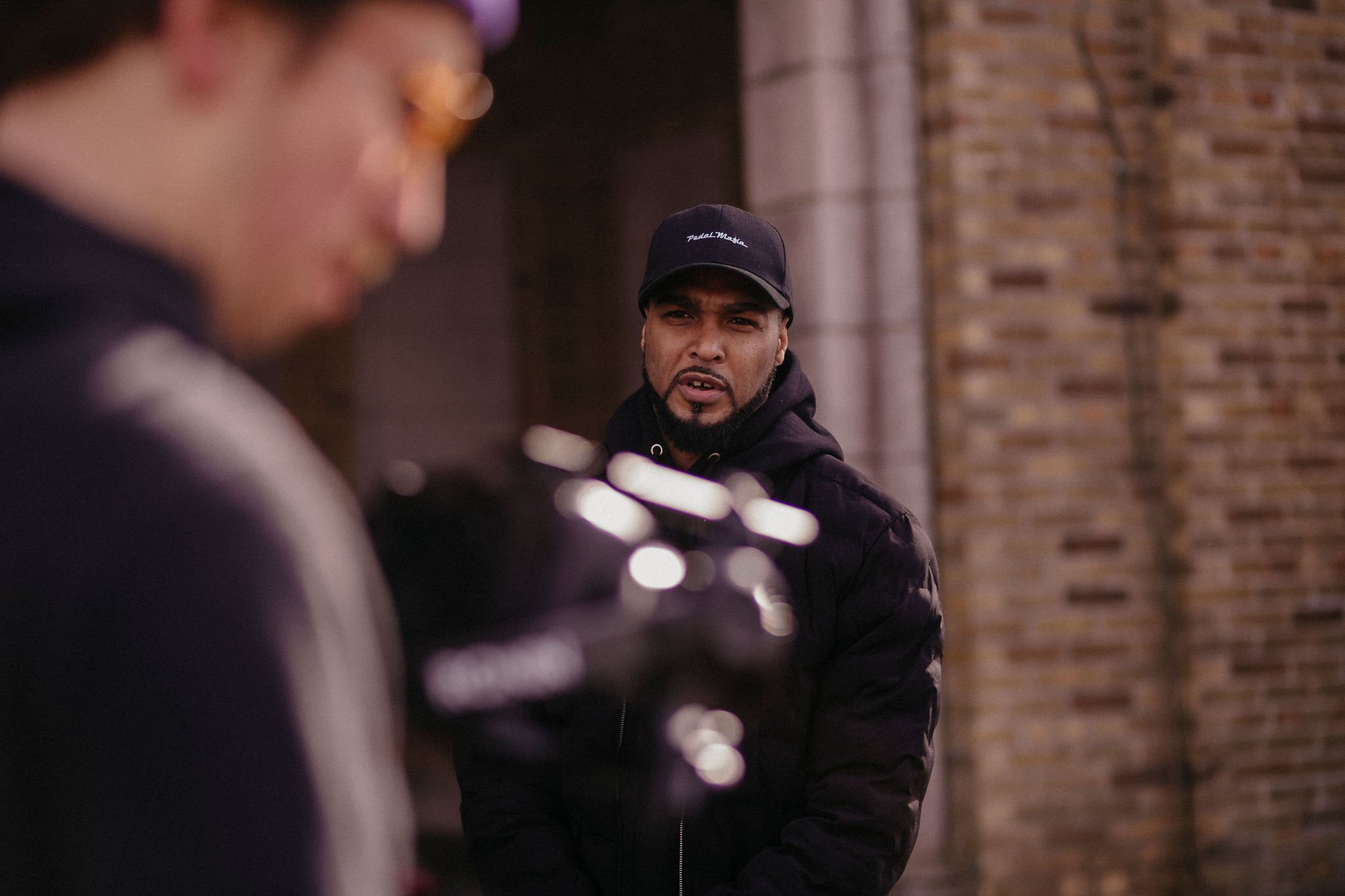
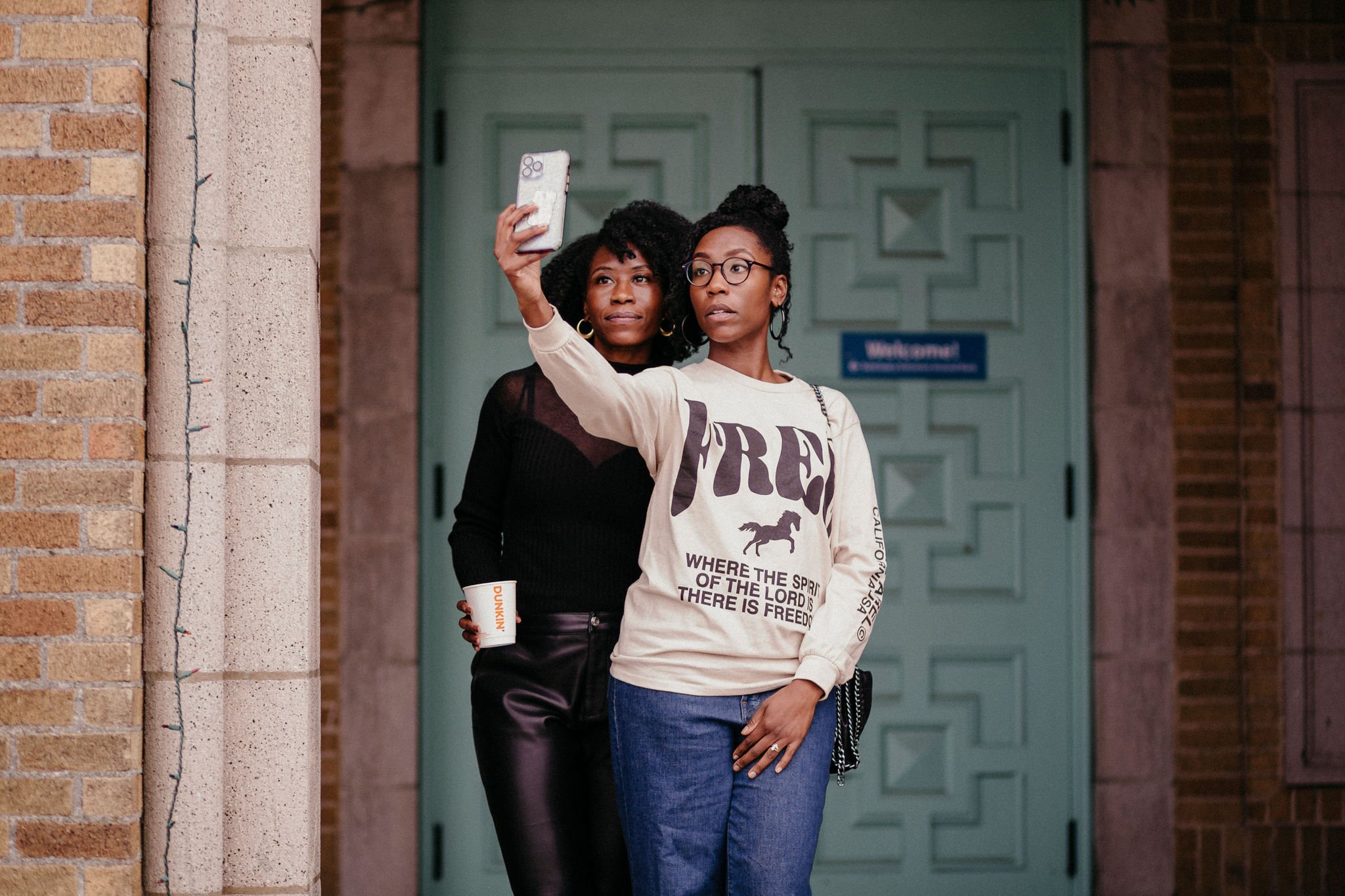
Individual Christians can also think creatively about their tithing and giving. Mike Mack is confident that there are believers in the area who want to “make sure that New England’s a hub for artistry” and that Christian creatives have the tools and access they need to thrive.
“Somebody out there has that heart, but they've probably been told that the only way that you can give is to give it directly into the Church,” he said.
Being open to think creatively when it comes to finances is an opportunity to walk in step with the Spirit and partner with what God is doing on the ground.
“Are you listening to the voice of God? Do you ever wake up in the morning and say, ‘What does my city need? What do I gotta do?’” Mike Mack said. “Do you ever see somebody who's a creative and just think to yourself, ‘Wow, this person could really use assistance. I believe in what they're doing — let me help them out’?”
Creative with space
Boston is not kind to Christian artists and creatives looking for event space. They can have a tough time finding venues that will meet their needs at an affordable rate.
Many churches have significant real estate footprints with resources that could be used to support the work of creatives. Stewarding those resources well has kingdom implications.
Mike Mack said that along with everyone else, church leaders will one day have to give an account for what they received and what they did with it — “especially the stuff that we prayed for.”
“You look around and it’s like, what resources is the church sitting on? What young, up-and-coming rapper is actually the greatest preacher in your church, and you’re just not utilizing him because you don’t like the way that he does it?”
“‘Lord, I need this, please give me this.’ And he's like: ‘You just want it for yourself, you wicked servant. You just want it so you can hoard it. Why should I give it to you?’” Mike Mack said. “Somebody's praying for their building fund right now — got money coming in from everywhere — and have no plans of using it for the people who gave to it.”
Churches can use their spaces to host concerts, exhibits, and other artistic events. They can work collaboratively with creatives to further the kingdom in their local communities with the use of their building space.
Creative with staff
Beyond physical assets and resources, churches can build out their ministry staff with Christian creatives who feel called to serve in the church.
“Put the creatives in your church on staff. Pay for their position,” Pastor Val said. “Put people on staff so that they're actually able to do what they need to do and also support the life that they need to live.”
Bringing creatives on staff may not come intuitively to some church leaders. It may mean interrogating our ideas of what a church staffer looks like.
“You look around and it's like, what resources is the church sitting on?” Mike Mack said. “What young, up-and-coming rapper is actually the greatest preacher in your church, and you're just not utilizing him because you don't like the way that he does it?”
“Church” may not look exactly the same anymore. Christian creatives may have interests that don’t naturally align with the way many churches usually approach the arts. They might not play a musical instrument or want to lead the children’s Christmas play.
“It’s glorifying God just in a different approach. I think once people can realize that, they’ll definitely leave more space for more opportunity for creatives like myself and others.”
“We have to start — and I'm hoping even at my church — making room for the ministries — no matter how unique they are — so that this is a place where they can flourish,” Pastor Val said. “This is a place where we will financially invest in that ministry just like we're going to invest in the summer camp, the food pantry, the marriage retreat.”
Pastor Val said church leaders should recognize that creatives are also theologians. They should invite creatives to look for ways they can visually bring to life what is being taught or preached from the pulpit.
“One of my dreams is that someone would do a dramatic piece of the encounter between Jesus and Satan in the desert, where they have this word battle, and Jesus literally drops the mic at the end. It is done. It's a wrap,” she said. “It's so dramatic. This interaction between Jesus and Satan is intense, it's high stakes. And I'm like, why hasn't this been made into a dramatic piece yet?”
Creatives like Acevdeo are confident churches can make use of them and support them at the same time. He encourages creatives to be plugged into a local church community, rooted and grounded in Christ alone. He believes this spiritual vitality will help shift hearts and minds within congregations to make room for artists with unique gifts who relate in different ways.
“It's glorifying God just in a different approach,” Armani said. “I think once people can realize that, they'll definitely leave more space for more opportunity for creatives like myself and others.”
WATCH: Church & Creatives
Have you ever experienced music or art that has helped you feel closer and more connected to God? For many people, creativity and artistic expression have become an important part of their faith. The Emmanuel Gospel Center connected with Christian creatives and pastors to learn from them how churches can support and equip the artists sitting in the pews. Watch this video that dives into this world of faith and creativity while highlighting opportunities for support and collaboration.


